CENTURY SURVIVORS: SALUTING STORES IN BUSINESS 100+ YEARS
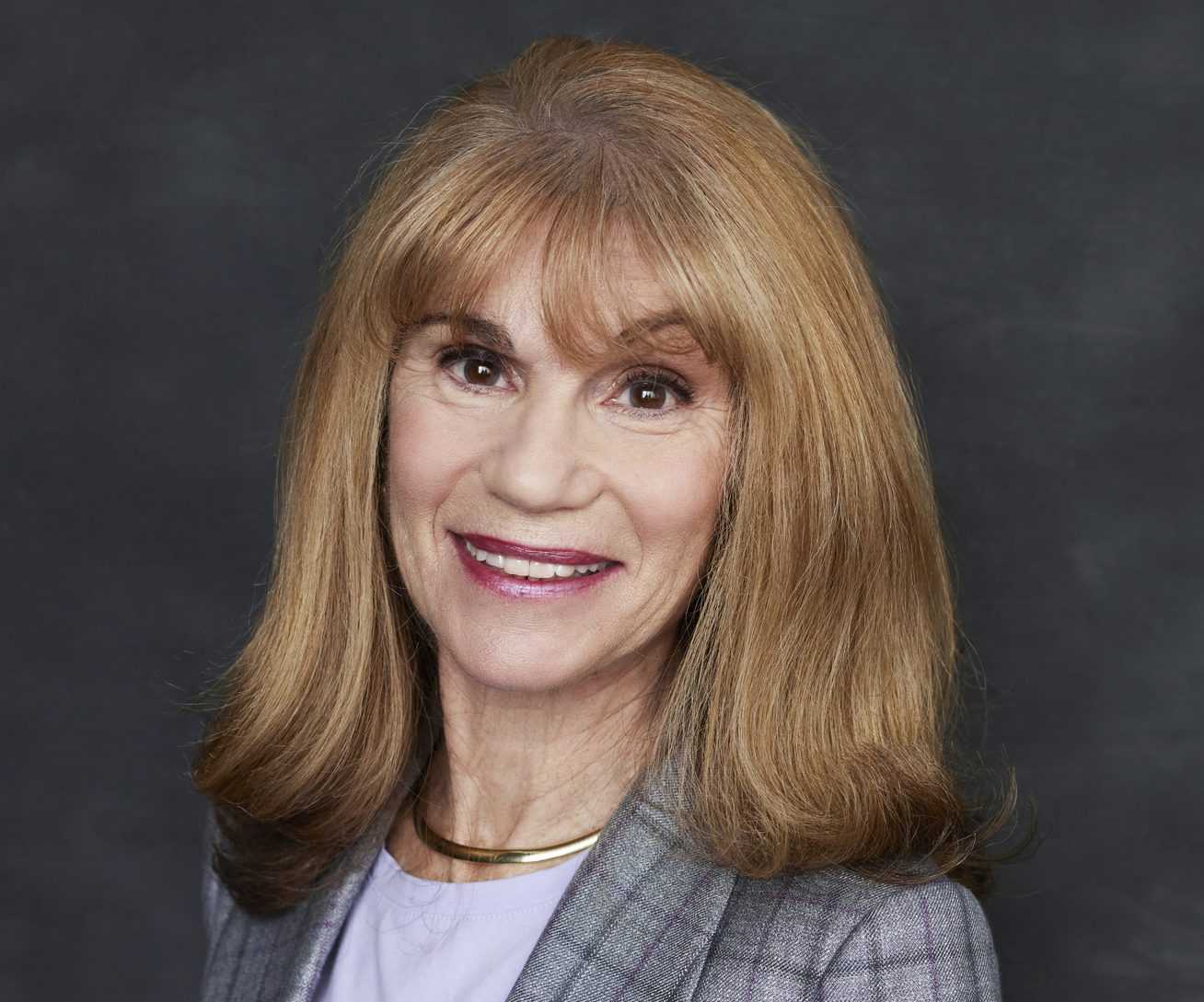
NEILSON’S
OXFORD, MS
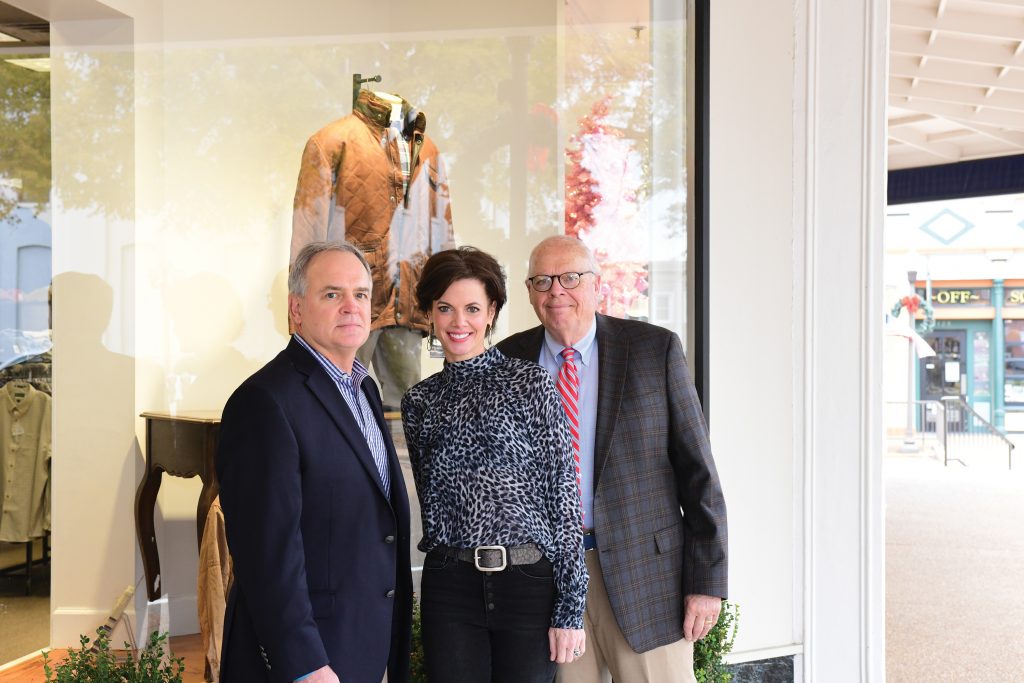
Established in 1839.
Will Lewis Jr. is the current owner of this very special establishment, the oldest store in the South and first on our list of independent menswear merchants (35 percent of their mix is men’s; they also sell women’s, kids, china and crystal). “We’re only the second family to own the store: My father ran it for the Neilson family; my daughter is running it now,” Lewis says.
Lewis attributes their longevity to three factors: they own their real estate; they’re in a college town with an upscale clientele, and their team has a genuine passion for the business. “My father Will was totally dedicated to the store: He spent 75 years there; he was working 10 days before he died.
“We’re unique in a lot of ways, almost an anachronism,” Lewis continues. “We’re in a town of 20,000; the university is another 20,000. We’re a mile from the university; students and their families come to Oxford to shop.”
According to men’s GMM Lane Wilson, (who’s worked at the store for six years: He had been a rep in Dallas where he met his wife, then a buyer at Neilson’s…), recent men’s business has been healthy but less dependent on tailored clothing. “Counter to stereotypes of southern guys, we’re not even selling bowties or pocket squares! Of course, navy blazers always sell for fraternity rush, suits sell for formals and interviews but in general, what’s driving sales is sportswear. We try to be different than the majors; our buyers are well aware of what competition is doing. We’re moving to more upscale, modern looks: Brax, Mizzen & Main, performance fabrics, trimmer fits….”
With the store’s rich history dating back to pre-Civil War, Lewis is most proud of a (framed) letter from William Faulkner that hangs in the store. “When he couldn’t pay his bill, he offered us an autographed book instead of cash. My dad wisely accepted his offer. Faulkner scholars now flock to the store just to see this letter.”
MILLER BROS.-NEWTON
KEENE, NH
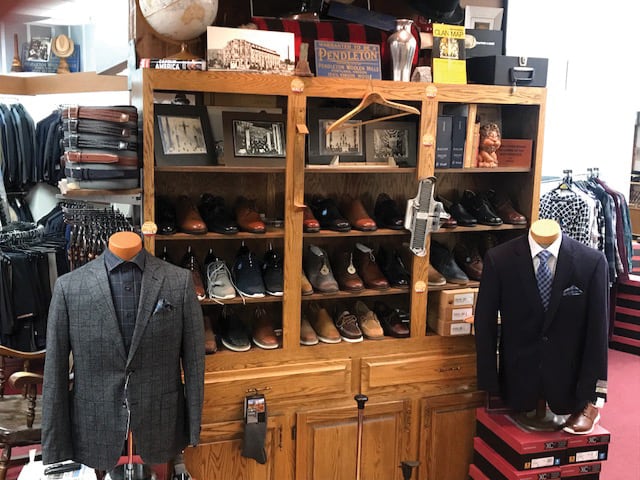
Established in 1916 (with roots dating back to the 1840s).
Miller Bros. is a full-service menswear haberdashery offering top quality products and exceptional service. According to Bruce Wichland, who’s spent the past 40 years working at the store, the real secret of its lasting success is its unique family dynamic. “Over the years, all employees have been treated like family and therefore treat the business as if it were their own. Our core value is establishing caring, personal relationships with customers and treating them the way you would want to be treated. Other tenets of the business: carrying quality products, evolving with changing styles and trends and offering exceptional customer service. All of these factors continue to contribute to the longevity of our business.”
ISAAC BAKER
ERIE, PA
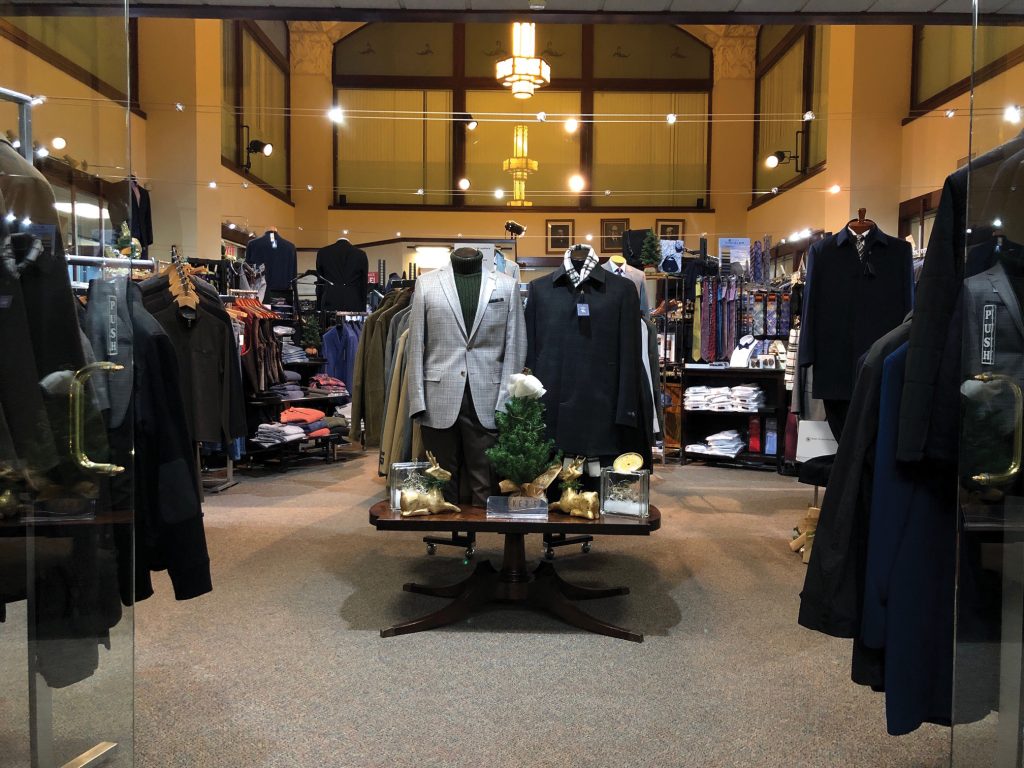
Established in 1850.
David Baker Sherman can’t remember when he didn’t go to work with his dad on Saturdays. “I basically grew up in retail. After college, I moved back home to work in the store. Maybe I felt a bit of family guilt/pressure, but I was always free to choose. In the end, I stayed on Generation No. 6, now celebrating 170 years in business.
“We are Erie’s independent clothing store, where you’ll discover unique products not found in the local big boxes. We currently have four people in our tailor shop: one master tailor, one very seasoned seamstress and two apprentices (one capable of running our shop). We’ve always offered free tailoring for the life of the garment. The big box stores charge for alterations, and most don’t have skilled tailors to ensure the finished garments are correctly fitted.”
Sherman acknowledges a market that’s not high-end. “Our median household income precludes selling luxury brands,” he says. “But I was taught to be fair with pricing: You might not always be the least expensive, but keep consistent and the consumer interested in quality over price will see the value you offer.”
Another weapon, he explains, is his diverse staff. “We have quite a variety of personalities among our staff. Therefore, we’re able to easily connect with all types of customers. My father used to say that we can make 80 percent of our clients very happy, 15 percent will be indifferent and the rest, well, sometimes no matter what you do, certain customers won’t be satisfied. My dad’s advice: If you give it your best, you can be proud of that….”
Driving sales this season: tailored clothing. “We’re still a tailored clothing store, the place to go when looking for professional guidance on one’s wardrobe. Although business casual continues to take over in my community, we still have our niche as the area’s men’s clothier. Of course, vendors selling direct-to-consumers hurt small independents: It’s tough to compete with big-box stores, online stores and now our own suppliers. But we independent retailers are a headstrong bunch, determined to fight the battle. Yes, we get beat up once in a while, but bottom line, we all love the game.”
LEVY’S INC
NASHVILLE, TN
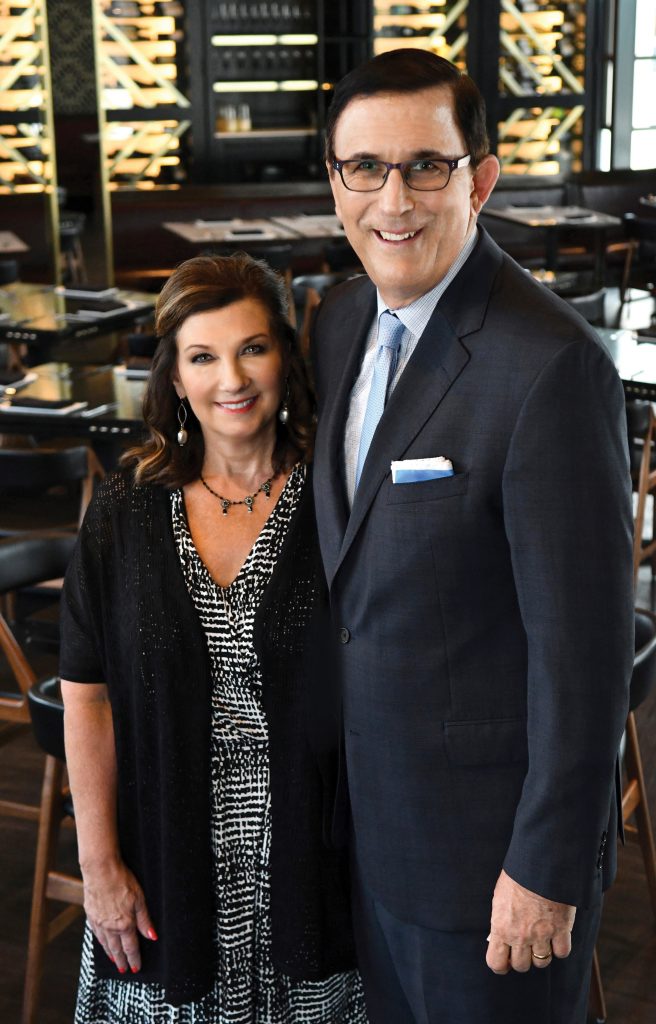
Established in 1855.
As a kid, David Levy hung out in his father’s store just so he could spend more time with his dad. While Ralph Z. Levy Sr. loved having his son around, he discouraged him from choosing a career in retailing. Sadly, Ralph died in 1976 while David was still in college, and David went to work in the iconic Nashville store founded by his great-great-grandfather. Levy’s is now owned by David, his wife Ellen, and family. In the best possible sense, the store remains an extension of the family’s creativity, work ethic and genuine warmth.
As a World War II veteran of the “greatest generation,” David’s dad was a six-plus-days a week clothier. David describes Ralph as both “a big bear who totally dominated the store” and “the kindest man around” but always with an incredible eye for detail. “If a size 15 ½ x 32 shirt was in the wrong place, he could spot it from the other side of the store.” David remains inspired by his dad’s eye for detail, his ability to make friends and his involvement in the community.
Asked for longevity secrets, David believes in change. While he and Ellen are “loyal to a fault,” they constantly seek out new vendors and ways to differentiate themselves. “Our goal is to always be a bit different, to try something more creative than our normal mix, and nudge our clients to try something new. In order to compete in today’s challenging retail environment, we must constantly embrace the changes that exist in everyday life and understand the needs and wants of our community. Our business is about positive relationships; our core values include integrity, community, maintaining commitments, and staying profit-driven.”
Believing that clients gravitate toward the energy of youth, David and Ellen have added some young sellers to the team. “We find that all of our sales associates challenge us to teach and learn every day,” says David. “We want them to enjoy building wardrobes and sharing their clients’ special events and success stories. It’s so important that each experience for our young customers is a great one and that we exceed their expectations while building long-term relationships.”
KOSITCHEK’S
LANSING, MI
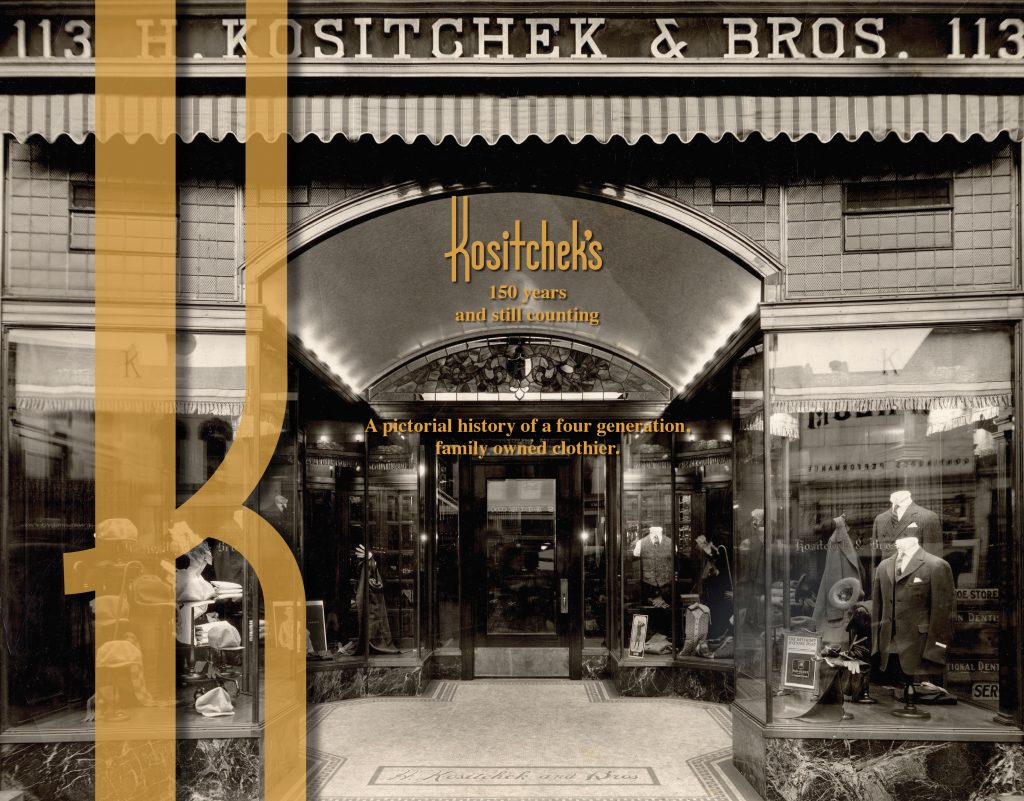
Established in 1865.
It’s a typical 19th-century rags-to-riches story: Henry Kositchek, born to immigrant parents from Austria, first peddled dry goods from a wagon before opening a store in 1865. He judiciously moved the store to Lansing, the new state capital, where his son Louis grew the business by selling top quality suits to Lansing’s lawyers and lobbyists. Louis’ son Richard took it to the next level, guiding the store through a depression, a world war, and a baby boom during his 70-year tenure.
Richard’s son David, who started working in the store at 12 years old, is now the proud fourth-generation owner of this iconic menswear establishment. “I always knew I wanted to work with my father and grandfather,” he notes. “We’re known for our quality merchandise, our high level of personal service and our ne tailoring. The store was founded when Lincoln was president: It’s just steps from the state capital so we sell a lot of suits! We hang more than 1,000 sleeves; we have five busy tailors; and counter to the industry trend, we still have a huge neckwear business.”
The store is also widely respected for giving back to the community, a tradition that’s endured through four generations. “Our annual Dapper Dads fashion show benefits the local hospital which is the biggest employer in the state. Local businessmen serve as models and the event raises money for this wonderful cause. We also sponsor a Father’s Day writing contest that’s another successful fundraiser. We’re proud to be able to give back to the community that supports us.”
Among his longevity secrets, David first credits his team. “The main reason we’ve been able to grow is thanks to a wonderful group of knowledgeable and dedicated sales professionals. Our general manager, Matt McLeod, was hired by my dad and has been my right hand for 40 years. For 154 years, Kositchek’s has created a shopping environment that’s a unique blend of four generations. Prosperity has made it possible for us to grow and adversity has been our greatest teacher. We remain grateful for each one of our tailors and salespeople: They are the ambassadors of our store.”
Asked what he learned from his father and grandfather, David responds thoughtfully. “They taught me about civic responsibility and social activism. And that we’re more in the hospitality business than the clothing business. And how to make people feel comfortable the moment they enter the store.” From his grandfather, David also learned to get goods out of the stockroom. “‘You can’t sell from the stockroom,’” he’d often remind us. ‘Get it out on the selling floor.’ (I still hear him speak these words each time I go in our stockroom….)”
Asked for his advice to aspiring retailers, he doesn’t hesitate. “Build strong relationships with your vendors and present merchandise like you believe in it: Narrow and deep is a far better strategy than broad and shallow.”
OAK HALL
MEMPHIS AND NASHVILLE, TN
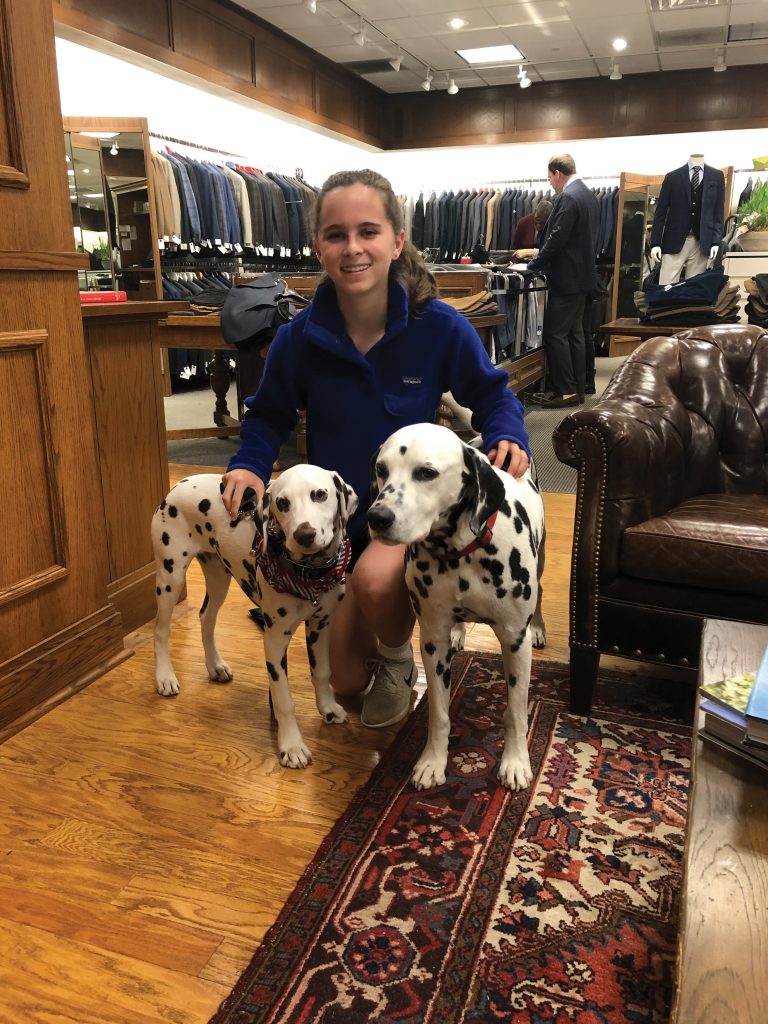
Established in 1859.
Bill Levy, who with his brother Bob is Oak Hall’s fourth generation, has worked at the store for the past 55 years. “I’ve learned that the only thing that doesn’t change is core values: We try to run our business with the highest integrity, always treating our customers, employees, and vendors with honesty and respect. Everything else changes so I’ve learned to embrace the change…”
While Bill says it’s hard to go back 160 years and pick the best years, he lists the big moves. “In 1970 from downtown Memphis to a smaller location in East Memphis. Then in 1996 to our present location where we’ve been for 23 years. Each move provided a new beginning. The most recent was our entry into the Nashville market with our new store in Green Hills.”
Among the ups and downs over the years, Bill cites the 2008 recession as the biggest challenge. “I had to have a store meeting and ask all of our employees to take a 10 percent pay cut. We didn’t let anyone go and after the meeting, instead of being upset, most of our employees came up to me to say thank you. I was about 60 at the time; I wish I could have gone through that recession at a younger age…”
Asked what he might have done differently, Bill responds that if he could change one thing, he would have started bringing his dog to the store sooner. “Having Jake at the store has been positive in so many ways. Customers love seeing him there. He reflects our values: warmth, loyalty, friendship. Plus, I get to meet so many customers on a more personal level. Jake is also a therapy dog: I take him to St. Jude Children’s Research Hospital in Memphis every week, and that’s the most rewarding thing I’ve ever done. My grandfather taught me that since we receive so much from our community, we need to give back. We’re involved in many local charities in both Memphis and Nashville.”
Part of Generation Five, Bill’s son Will started his career in public accounting. “I was bored out of my mind so when a unique and more creative opportunity opened up with the Oak Hall buying team, I jumped on it. It included opening three Vineyard Vines’ partner stores as well as Oak Hall Nashville while growing Oak Hall Memphis. These were definite highlights of the last 10 years….”
Will describes Oak Hall’s mission as “making people feel great;” his longevity secret is “treating people how we’d like to be treated.” What he loves most about the business is the people; his least favorite thing is the low margins.
What’s driving sales this season? “Our best customers drive the show,” says Will. “Service drives the show. People want to have a great time shopping; we offer value by simplifying the shopping experience for them. After all, nothing happens until you sell something.”
CHANCELLOR’S
COLUMBUS, GA
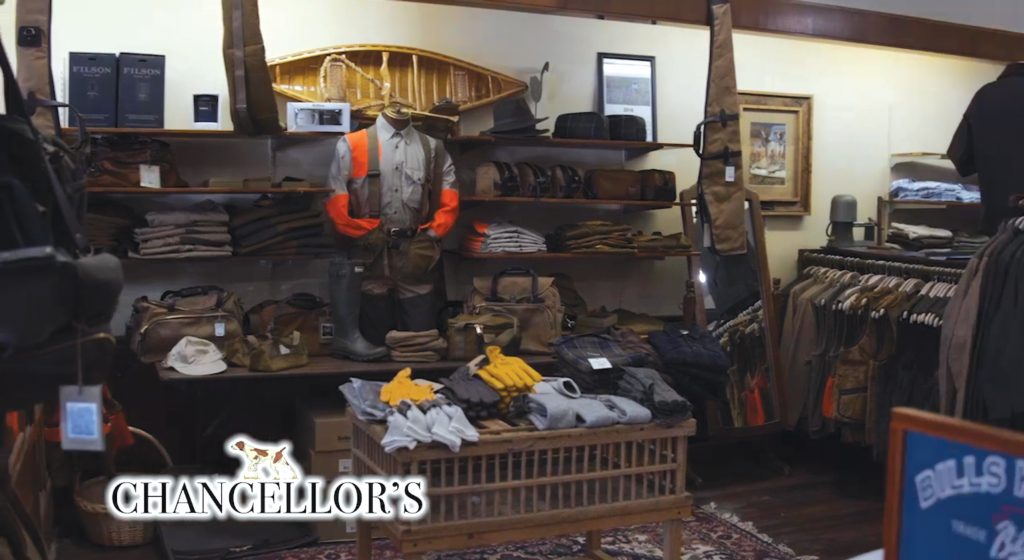
Established in 1873.
To hear current store owner Roger Stinson tell it, Chancellor’s arose from the ashes of the Civil War. Alexander Claringdon Chancellor lived in a mansion at a crossroads in Virginia known as Chancellorsville. On May 1, 1863, the second bloodiest battle of the Civil War was fought there, and Stonewall Jackson was accidentally shot by his own men, dying five days later. Chancellor’s home was used as a field hospital but was destroyed by three days of repeated cannonball fire from the Union Army. Chancellor then rode south, settled in Columbus, GA, and took a job at a dry goods store, which he purchased 10 years later in 1873. It stayed in the family until 2007 when it was bought by Stinson, a talented merchant who had been working for the Chancellor family since 1987.
Stinson is intrigued by all the history but is mostly focused on maintaining original family values while evolving the mix. “The store was always upscale menswear but I’ve added outdoors, hunting/fishing, a lot of custom clothing (suits, shirts, sportscoats) and numerous young men’s collections. Our niche remains service and t but suits and sportcoats, once 70 percent of store volume, are now 20 percent. Hart Schaffner Marx remains a strong-selling label but there’s no brand loyalty anymore. We use Baroni for margin, and it sells really well for us at excellent margins.”
LEUTHOLDS
ALBERT LEA, MN
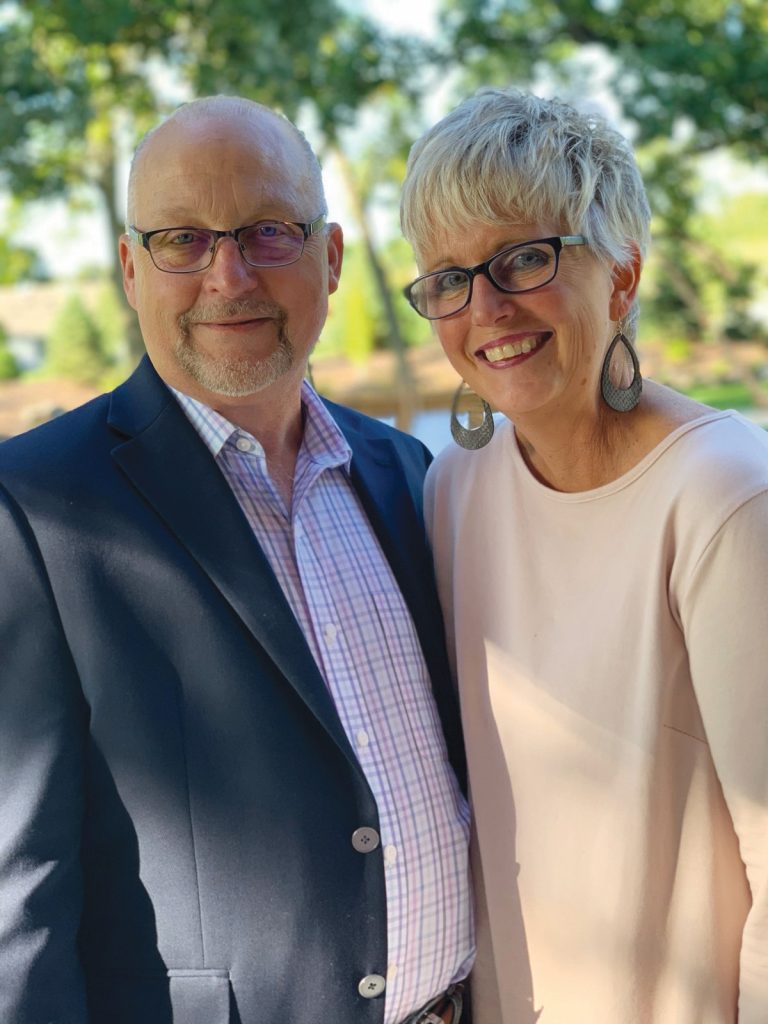
Established in 1878 as a cooperation of stores. The Albert Lea location was founded in 1917.
Mission statement: “Create a warmer, friendlier, shopping environment by providing, quality unique merchandise, and the most compelling shopping experience possible.”
Driving sales this season: Formalwear is a huge part of our business, a constant cash cow. Those who you help with formalwear come back for other items.
What’s needed for improved business: More retail in our mall. However, a new medical center is being added, set to open summer 2020, which should bring more foot traffic to the mall.
Longevity secrets: “Quality merchandise and a knowledgeable sales staff build business confidence that endures through the years,” said Jacob Leuthold Jr. in 1878 (and true today!).
Love most: The relationships and friendships we build with customers and sales reps
Other interests: Enjoying time with family and friends; fishing in the summer.
BERLIN’S
CHARLESTON, SC
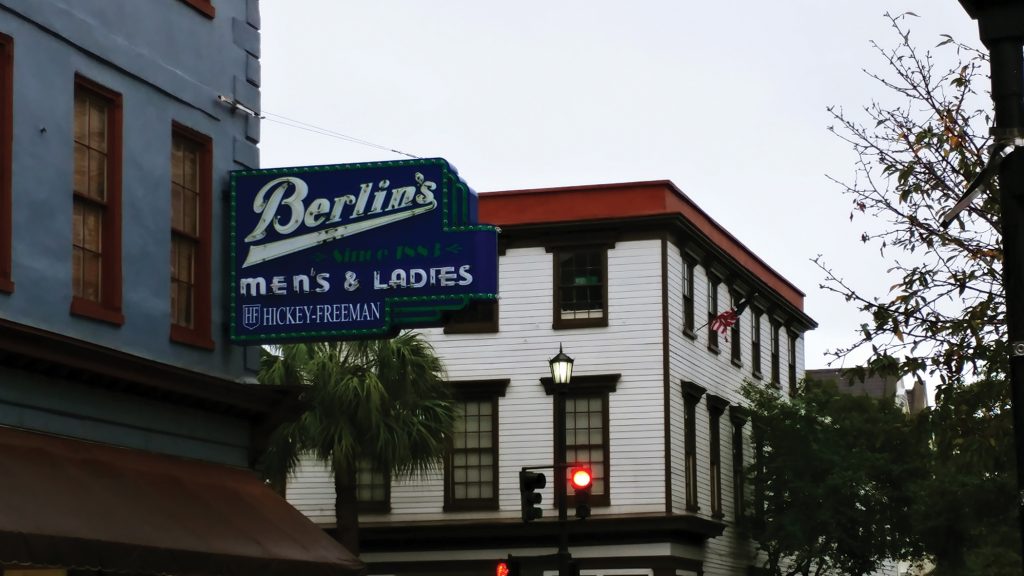
Established in 1883.
In the same location—the historic section of downtown Charleston—and owned by the same family since 1883, Steve Berlin (fourth generation) could not be prouder of his store’s heritage. “Paul and Joanne Newman bought luggage here,” he recalls. “Bryant Gumbel shopped here. Pat Conroy was a good customer and friend—our store is mentioned in several of his books! We have regular customers from all over the world and at certain times of the year, we have more tourists than local shoppers.”
The store was founded by Steve’s great-grandfather Henry Berlinsky and was ultimately handed to his grandfather, then his father and uncle. Steve joined the business in 1982 and his sister Elaine (who runs women’s) five years later. “Our mission is simple: to give the best-personalized service and the best quality products our customers deserve, because they’re not just patrons, they’re also our friends. We compete in today’s market by giving a great selection and the best tailoring you can find in our region.”
Steve acknowledges changes in the industry that have made it more difficult for menswear independents to succeed. “Although the internet has been the demise of many retail businesses, I believe that good specialty stores are getting stronger: Men still have to try on a suit. Still, with the precarious state of retailing today, you’ve got to love what you do or get out. This is a people business and it takes a certain personality type to be truly successful….”
And according to many, no one better typifies that personality type than iconic merchant Henry Berlin, Steve’s dad, who died two years ago after spending a lifetime in the store. “He loved his customers and they all became his friends,” says Steve. “He was a real character, the Don Rickles of the apparel business who was full of one-liners and couldn’t resist giving customers a hard time. For example, a customer’s wife would say ‘I love this coat on my husband’ and Henry would say ‘Well we can’t trust your taste: you picked him!’ My uncle Alwyn was just as bad: A customer would be wearing an ugly shirt and Alwyn would literally rip it off him and give him a new one!”
Asked for longevity secrets, Steve believes in investing back in the business. “We recently remodeled the store with new lighting and additional dressing rooms. Of course, our windows also serve as salespeople.” He believes in narrow and deep assortments (“new brands are less important than building what you have”) and in carrying better goods (“we open with Jack Victor at $1,000 and go up from there….”) In addition to upgrading assortments, he’s been gravitating toward more modern (slimmer) fits.
He provides two more tips: 1) Never let a customer walk out with the wrong garment and 2) Update trunk shows. “Our trunk shows had become stale so we renamed them fashion events and they’re reinvigorated. Our sales associates personally invite their key customers, and we promote on social media.”
Although ladies’ fashion is a separate business run by Steve’s sister Elaine, Steve acknowledges its importance. “Our ladies bring in the men, and we really appreciate it,” he says. “Guys will often say, ‘I’ve got plenty to wear at home…’ but I’ve never heard those words spoken by a female….”
MILLER’S OF JOHNSTOWN
JOHNSTOWN, PA
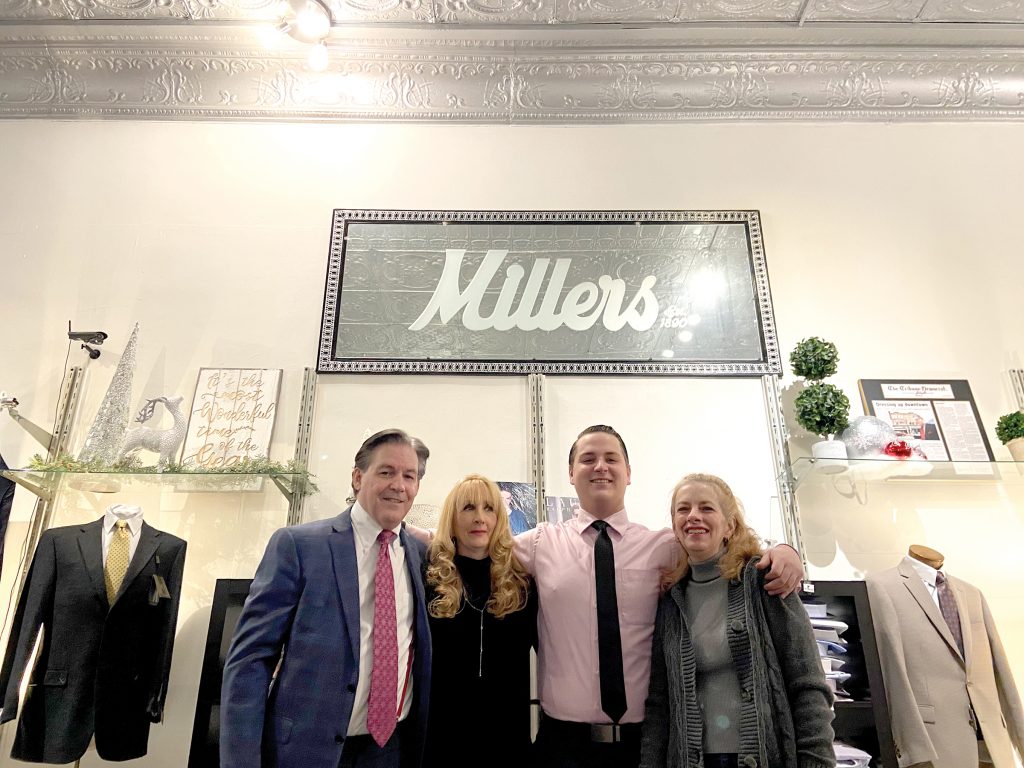
Established in 1890.
Longevity secrets: We extend service beyond our building: delivering goods to customers’ homes, performing house calls, making after-hours appointments. We provide our customers with complimentary custom tailoring for life, as long as their purchase was made at our store. We also rent formalwear: We own our inventory of tuxedos, vests, ties, shirts and shoes so instead of ordering from a catalog, our customers can see, feel and try on.
Love most: Satisfying our customers. However, we also really enjoy choosing new collections every season, meeting with new companies, and bringing in new brands in hopes of diversifying and attracting younger customers.
Like least: It can be difficult dealing with customers who don’t understand that there are limitations to what we can provide. Also, competing with e-commerce businesses can be quite frustrating!
Other interests: We own a local diner that has also been in town for more than 100 years, so that takes up much of our free time! We’re all avid Pittsburgh fans, so we love attending Steelers, Penguins or Pirates games. Also, Taylor likes to go out and discover new local bands. Other than that, it’s pretty much work all the time.
Driving sales: Bringing in new brands has really helped sales. Also, people realizing that we can alter any clothing according to their specifications has helped bring in younger guys who are always looking for the slimmest and tightest fit they can get. Lastly, even though we’ve always been a high-end men’s clothing store, adding casual clothing has rocketed sales to a new level!
What’s needed: Our local economy reviving from a distressed state to a thriving one. And customers opting to shop locally rather than online.
ALEXANDER DAVIS
BOISE, ID
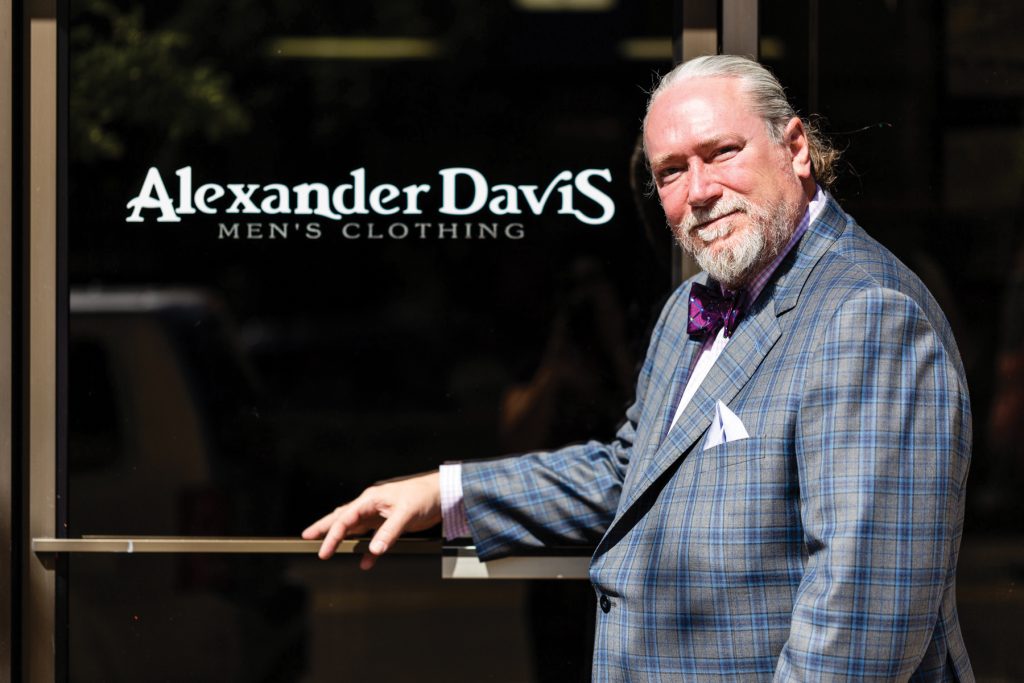
Established in 1891.
David Graves, the current owner of Alexander Davis, loves talking about his store’s history back to its founding by Moses Alexander in 1891, a year after Idaho gained statehood. “A merchant by trade but with political aspirations, Moses joined the gold rush, heading out west and ending up in Boise,” Graves relates. “With a few bolts of fabric and some tailoring skills, he set up shop on 5th and Main; miners would come in for their boots, gloves, and dungarees, haggle over price for a custom-made suit (there was no hanging inventory in those days…) and even stash their gold dust in Moses’s safe. The business prospered thanks mostly to the well-earned trust between store owner and client. Moses went on to become mayor of Boise and the 11th governor of Idaho in 1919. He was also instrumental in establishing the first synagogue west of the Mississippi.”
Fast forward nine decades: Graves took a job as a sales associate at Alexander Davis in 1984. “The tailors liked me and taught me how suits are constructed; this helped me tremendously when I became a manager, then a buyer. At the encouragement of the family, who wanted to find someone to continue their legacy and who allowed me to finance the sale via store profits, I became an owner. I’m now deeply committed to honoring the history of this great store.”
What’s driving sales now, says Graves, is a mix of dress-up with dress-down. “Outdoor brands like Filson and Barbour worn with Hiltl, Alberto or AG premium denim. It’s a cross-over look and a new way for our customers to dress; once guys try it, they like it and buy more.”
HOLMES
CEDARTOWN, GA
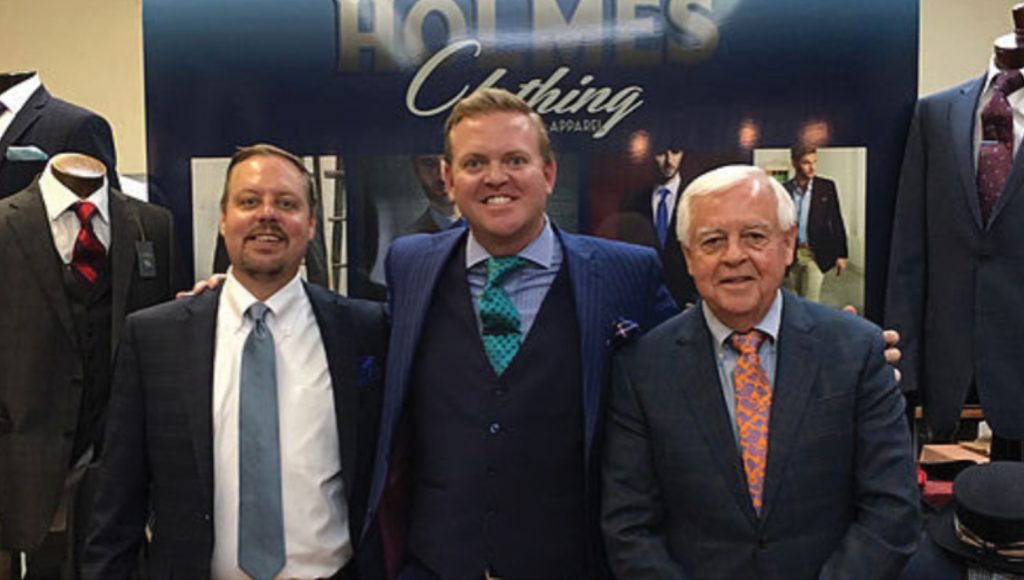
Established in 1895.
Founded in 1895 by W.K. Holmes, the store has been operating under its current owners (Bruce Casey and his sons Stephen and Ron) since 1980. As Stephen explains it, “My father had a store on the east side of town, my mother’s father (a sales rep for Hubbard Slacks) had a store on the west side. We had retailing in our blood and settled right in the middle: Cedartown, GA, 60 miles northwest of Atlanta, in a county of 36,000 people.”
The store has a boutique feel with brands including S.Cohen, Ibiza, Haupt, Alberto, Levi’s, Sperry and Florsheim. “Business has been good,” confides Stephen. “We’re selling a lot more tailored clothing than we had been. Guys are finding that their wives want to see them in more modern, slimmer fit clothing and while they don’t generally like change, once they try a slim-fit suit, they buy more.”
Admitting that fashion trends hit more slowly in the Bible Belt, Stephen confides, “According to most retail experts, we’re not even supposed to be here. We’re very old school: we don’t take returns or give refunds. We don’t sell online or do much email. We have no POS system and still hand-write tickets. But we believe in what we do, and we know what’s right and wrong.”
Asked what he’s learned from his dad (who still comes into the store regularly, if only to meet with customers and take lunch orders), Stephen doesn’t hesitate. “He taught us to never sit down while working in the store so customers are comfortable approaching us. He also taught us to never pre-judge, to treat all customers with equal respect, whether they’re buying an expensive suit or just a T-shirt.”
While both Stephen and Ron knew early on that they’d end up in the store, Stephen once had dreams of being a professional golfer. (Reluctant to reveal his scratch golfer status, we finally got him to acknowledge a recent ‘10 under’ score which, he insists, pales in comparison to the thrill he gets from an uptick in business.)
PALACE CLOTHIERS
WATERLOO, IA
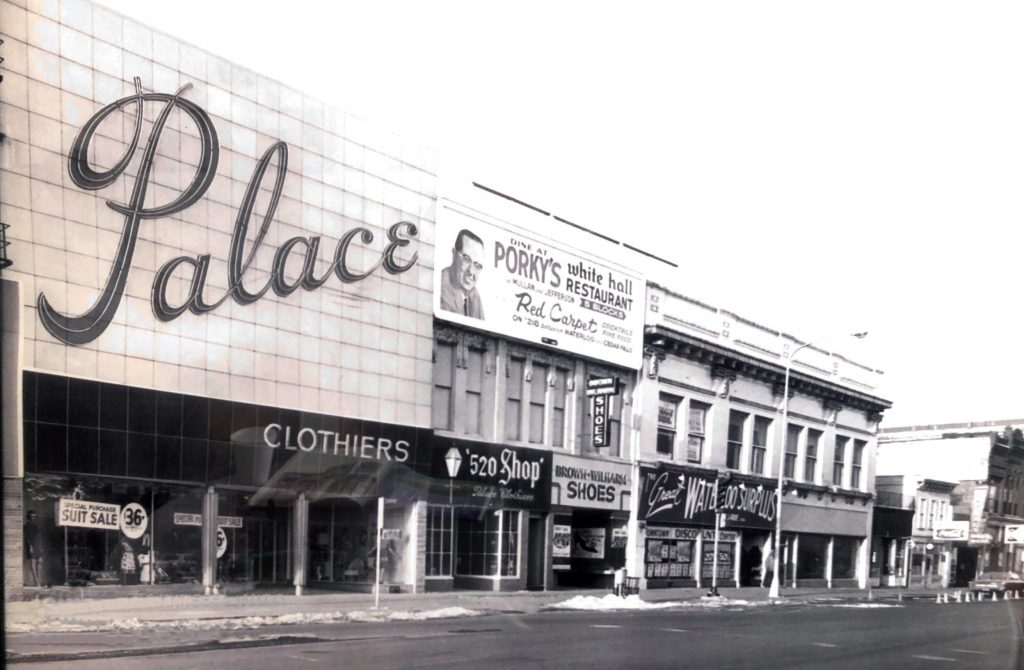
Established in 1898. Moved to Waterloo in 1903.
At age 48, Bud Field has been in retail for most of his life, starting out at age 14 working for his grandfather in the Cedar Falls store. He praises his grandfather Burton Field (“a great merchant who bought the business in 1936 for $22,000”) for teaching him well. “Nothing was handed to me: I had to earn each step. But it’s a much tougher business today,” he condes. “We’re a suit store in an increasingly casual society. But we adapt; we try new things. You’ve got to take chances in our business: A buyer who doesn’t make mistakes is not a good buyer. The goal is to minimize the damage….”
What’s driving sales today: wedding parties, traveler pants from Jack Victor, Brax pants ($198 retail), patterned sportcoats to wear with denim, Saxx underwear, Stantt shirts, On running shoes, denim from 34 Heritage and Jack of Spades, performance fabrics, Gruppo Bravo clothing.
Among the reasons Field gives for the store’s longevity: good tailors. “Fit is very important to guys today and with our great tailors, we can offer exceptional fit. I don’t think our customers are ready to try the runway-inspired oversized fits: We have a lot of guys who have their pant legs tapered to 14-inch bottoms… And fashion hits more slowly in the Midwest. But I never say never: Everything cycles back but usually in a slightly different way so we have to spin it.” Asked if he would try pleated pants again, he jokes that he still has the old pleated pants in stock. “But yes, I would try it again, probably single pleats to start.”
An out-of-the-box merchant, Field has maximized sales by office calls. “Instead of waiting around for business to come here, I realized I could virtually add extra months to the year by visiting offices. I already knew most of the heavy hitters in town who own car dealerships and other businesses so why not turn their employees into clothing customers? It creates plus sales and new customers.”
He’s also big on giving back to the community and takes much pride in the fashion show the store does for the hospital’s Festival of Trees celebration. “It’s the annual event that kicks off the holidays and always brings women into the stores to shop for their men.…”
Although Field does not sell online yet, he’s considering it. “Customers think of us for their formalwear needs; we probably should publicize all the young, cool clothes we now carry.”
RUBEN’S
AUGUSTA, GA
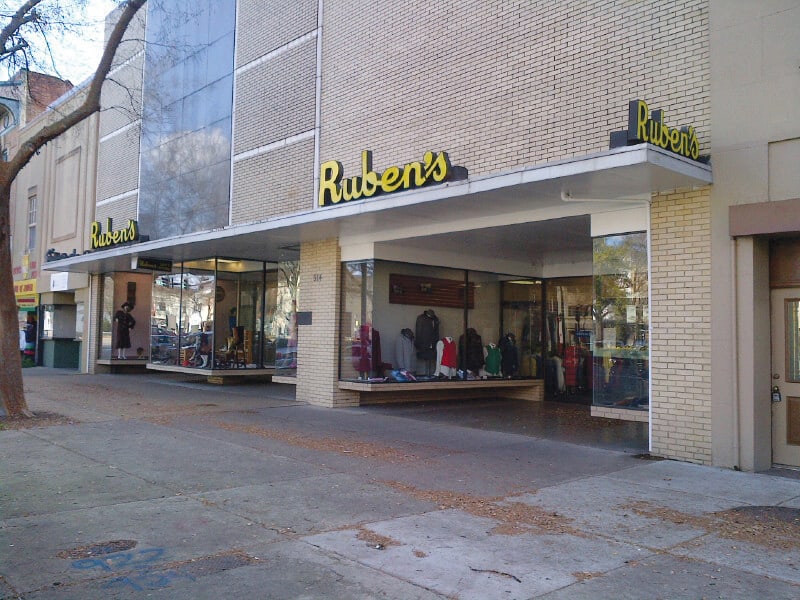
Established in 1898.
Jeff Garelick jokes that he became a retailer in the best possible way: He married the boss’s daughter. But it’s the passion he and his wife Bonnie Ruben put into the business that has sustained it well into the third generation.
The store was founded in 1898 by Max Ruben; Max’s son Paul (known to adoring customers as Mr. Paul) devoted 70 years of his life to carrying on his father’s legacy. Says Garelick, “Our customers love that we’re still a family business (40 percent of which is men’s). This past Thanksgiving, we had a grandfather, father, and son come into the store; they bought suits, shirts, and ties for all three generations. We love that! And we love when customers thank us for being here, noting that their father and grandfather shopped here. That’s why we do what we do.”
And what they do includes stocking incredibly broad selections of sizes, from 36 regular to 72 portly in men’s as well as huskies and slims in boys. They offer free alterations and still have house accounts. The boss is always in the store, and they know virtually all their customers by name.
And amazingly, in this dress-down world, Garelick notes that what’s driving sales these days is dress-up apparel: suits between $200 and $500, dress shirts, dress shoes, hats, and ties.
“Thank God for people in Augusta who still dress up for church and dinners out,” concludes Garelick. “We love our customers!”
PRICES’ STORE FOR MEN
SPARTANBURG, SC
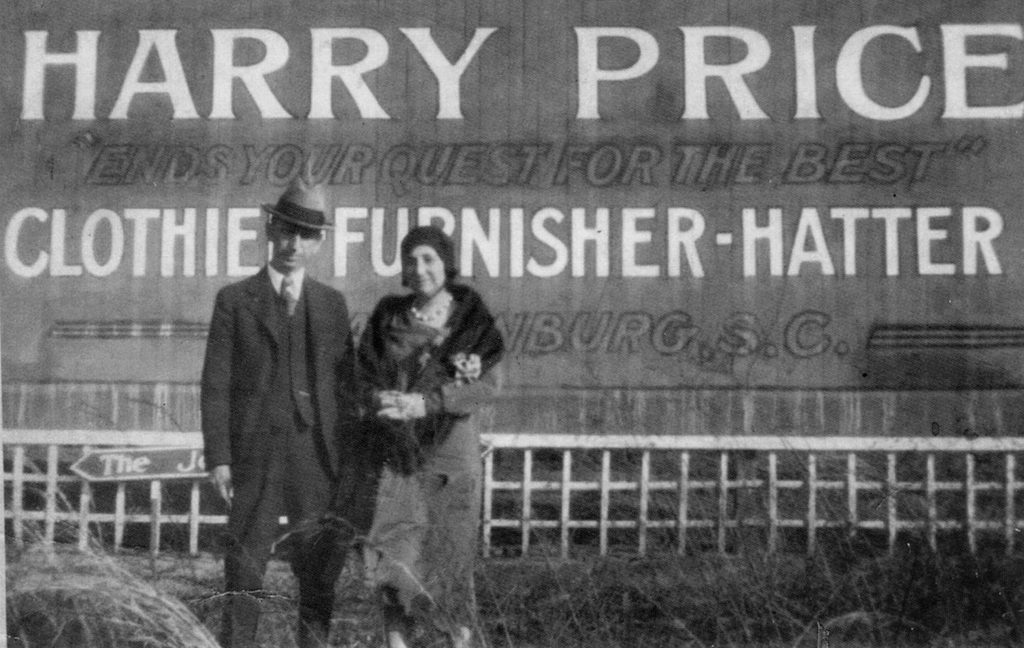
Established in 1903.
Longevity secrets: Goodwill built up from the loyalty of the community. A close and historic relationship with Wofford College and local families who have shopped with us for as many as five generations. Over the years, we’ve introduced this small southern market to brands that have become iconic: Levis, Bass Weejuns, Vineyard Vines, Burberry, Bill’s Khakis, Southern Tide, Peter Millar, Barbour and most recently, Saxx. Obviously, after more than 100 years, frequent reinvention and the ability to adapt are mandatory.
What you love MOST about the business: I love the creative aspects: store and window displays, store layout, producing in house video ads for TV and in-house events, maintaining inventive social media posts.
Like Least: I don’t always feel appreciated by some vendors.
What you’ve learned: How to make quick decisions and solve problems daily. And those conditions can change very quickly.
Interests beyond work: History and politics: national, local and family.
Driving sales this season: Sportswear complementing the unexpected growth in five-pocket pants and renewed growth in semi-custom suits and jackets as men discover they need replacement clothing. Consumer confidence is up.
COLUMBIA CLOTHING
DULUTH, MN
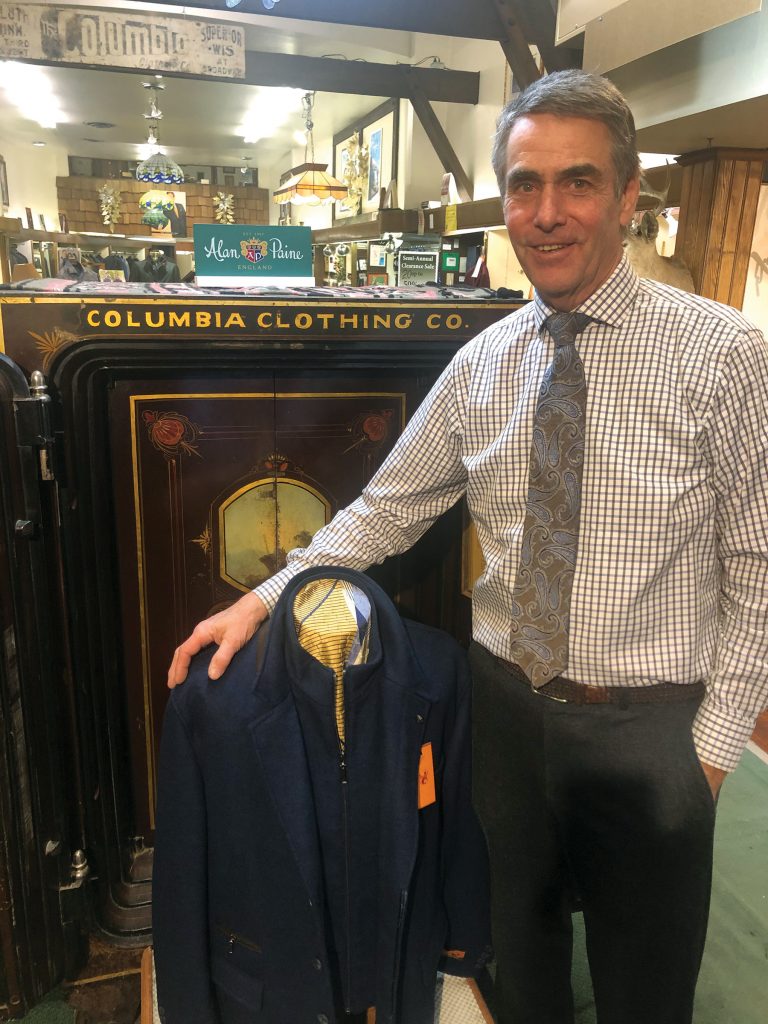
Established in 1905.
Founded in 1905 by William Billstein, Columbia Clothing was sold in 1936 to Davis Bradley and then again in 1953 to Ed Barbo Sr. His son Ed Barbo Jr. took over in 1974. “My goal was to get rid of the overdistributed brands and continually improve the mix with more exclusive products. The smartest move we made in 2012 was to add Lione’s Tailor Shop (the best tailors in the city); it’s a huge advantage to have expert alterations right here on the floor.”
An out-of-the-box thinker, Barbo Jr. has tried various ideas over the years: an underground young men’s department in the 70s, a few spinoff stores in the ‘80s and ‘90s. Going forward, he’s concentrating on attracting more younger guys who want trim-fit clothing, performance fabrics, and new brands.
What he learned from his dad (who died in 2000 at age 88): “Shop trade shows for as many new lines as you can, but don’t place an order the first time you look at something. Discuss with your people, compare the fit and value with what you already carry, and then decide.”
For the store’s longevity, Barbo credits his strong team, including John Mohn (custom clothing specialist), bookkeeper Karen Lakso and Tresa Olson in the tailor shop.
Asked about succession, Barbo notes that “few independent merchants ever get independently wealthy so to own a specialty store, you need a real passion for the business. Neither of my two lovely daughters (and neither husband) is interested in running a store so what happens down the road remains to be seen.”
FL CROOKS
CLARION, PA
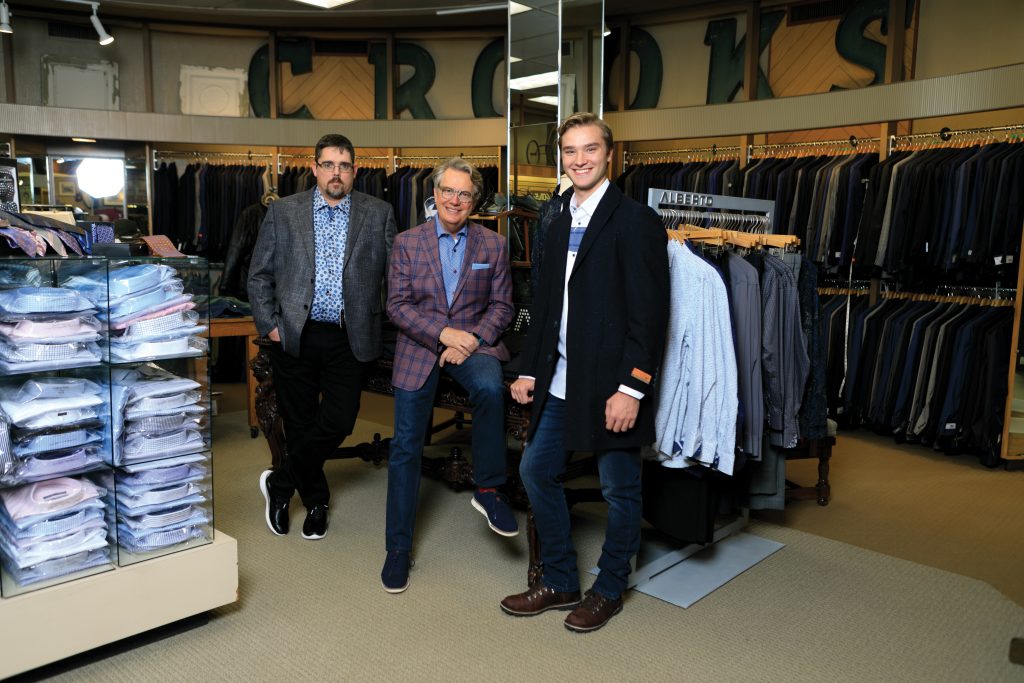
Established in 1905.
Jim Crooks is a believer in specialty stores. “My grandfather started this business and I still believe in it, despite what’s going on with online shopping. I guess I’m a denial person like my grandfather: he started out in the horse and buggy business with 4-5 livery stables, certain that cars fueled by gasoline would never make it! I believe in local independently-owned stores. You can get rid of the middle man but not the function that the middle man provides: genuine connections with the community.”
The store was actually founded by Jim’s grandfather’s older brother. “My grandfather took over in 1929 and ran it throughout the depression doing whatever he could to earn/save money. He cut hair, he pulled teeth (50 cents per tooth), he kept all the lights off until someone walked through the door. When my dad returned from the war, he was shocked to find the store devoid of inventory. He went to Philadelphia to meet with a key clothing brand; when they wouldn’t sell to him, he sat on the stoop for two days until they took his order. The same with Woolrich: He had 30 people on a waiting list to buy product. The store was empty: He had to fill it.
“We’re a rural store so while we sell suits to attorneys, most of our tailored clothing business is for weddings and occasions. We sell lots of sportswear, especially outdoor brands. Our major competitor, Weins (a great, old-fashioned moderate department store, 107 years old!) is having a big going-out-of-business sale which is impacting us now. It’s a shame to see it close, but the owner no longer has the fire.…”
Interestingly, FL Crooks was one of the first stores to start selling online—in 1989! “These days,” says Jim, “it’s increasingly tough to compete with not just Amazon but our own brands selling direct. They demand high minimums yet they promote online the same styles they send us. I’ve been writing to them, begging for them to just give us a window—a month of regular-price selling before they promote. But I’ve had to drop several great brands because I can no longer compete.”
Jim’s best advice to specialty retailers: Always appreciate and encourage your team. “We have a great staff and I tell them not to worry about chasing numbers, just be the best you can be every day.”
KOOLAKIAN’S
SYRACUSE, NY
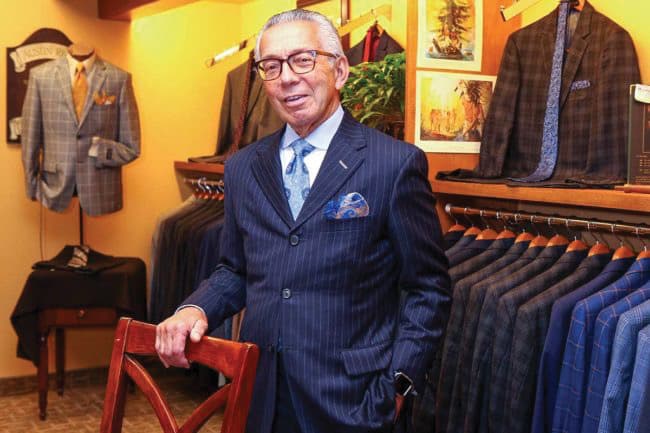
Established in 1905.
“My grandfather George Koolakian was a bespoke tailor who came to the U.S. from Armenia to escape the genocide there,” says Ed Koolakian, the current owner. “In 1905, he set up a tailoring and coat-making shop in downtown Syracuse with 8-10 tailors. Among their many projects at the time: crafting custom overcoats for Hickey Freeman. My dad (Edward Koolakian) was recruited into the business in the 1920s at age 13; his older brother was a student at SU and allowed to stay in school… My dad became a bench tailor specializing in custom clothing; he retired in the late 1960s when custom business slowed down. I joined the business in 1970, continuing the family tradition in our store in downtown Syracuse.”
The business today is mostly made-to-measure suits from H. Freeman (average $1,400 retail up to $2,000), shirts from the Measure-Up division of Individualized ($200-$350), woven shirts from Gitman ($165-$235) and trousers from Ballin and Corbin. They also carry stretch sportcoats ($495), vests and a fabulous DB overcoat from Richard Choi and athleisure sportswear from Buki.
“I think the challenge today is getting customers into the store. Our advantage is our on-site tailoring, with me as the on-site tailor. (My dad told me early on that if I wanted to join the business, I had to learn tailoring….) We don’t charge for alterations on regular price goods but I do charge for all the poorly-tailored suits customers bring me that were purchased online. (It also gets very busy during wedding season, so if I run into a jam, I use a bench tailor in town.)”
Edward’s not sure about a succession plan. “My wife wouldn’t let me draft my kids into the business so my son and daughter have both pursued satisfying careers in other fields. It remains to be seen if there will be a next-generation, possibly my nephew.”
Asked about men’s fashion, Koolakian responds thoughtfully, “As a menswear retailer, I’m no slave to fashion. Men want quality clothing with longevity.”
MICHAEL’S
KANSAS CITY, MO
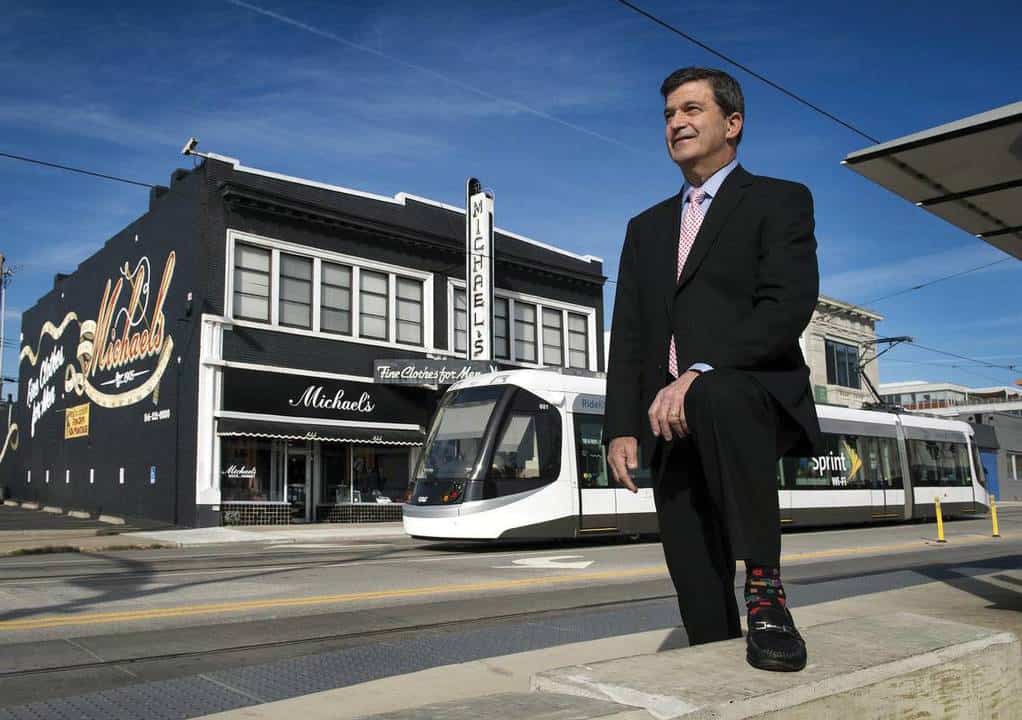
Established in 1905.
Michael Herbert Novorr was a Russian immigrant who came to the States for a better life. He somehow ended up in Minneapolis, then worked his way to Kansas City.
According to Keith Novorr, the current owner, what’s driving sales now is wedding packages: a suit, shirt and tie for $265, alterations included. “When you consider that a rental is $175, this is terrific value for an extra 50 bucks…” (Keith’s son Michael is the one who first got them into the rental business about 10 years ago.)
Annoyed by how many brands are selling direct-to-consumers, Keith is dropping vendors that promote on their websites and is actively seeking out makers that don’t sell direct. He’s growing his made-to-measure business and is quite happy with Coppley. He also does well with Maxman, a half-canvas make with minimal fusing in a variety of fits at great margins.
Thrilled with the transformation of downtown Kansas City, Keith notes that his walk-in traffic is up 50 percent based on a new streetcar system that stops in front of his store. (Although his street was torn up for a year and a half in 2013-14, the increased traffic has made up for it.)
“This store is not run by one person,” Keith concludes. “My incredible tailors, sellers and my right-hand manager (Bob Moore) all deserve much of the credit.”
Other than business, Keith’s passion is golf. He tries to take Thursday afternoons o and is working on improving his 8 handicap.
R.W. REED COMPANY (“REED’S”)
TUPELO, MS
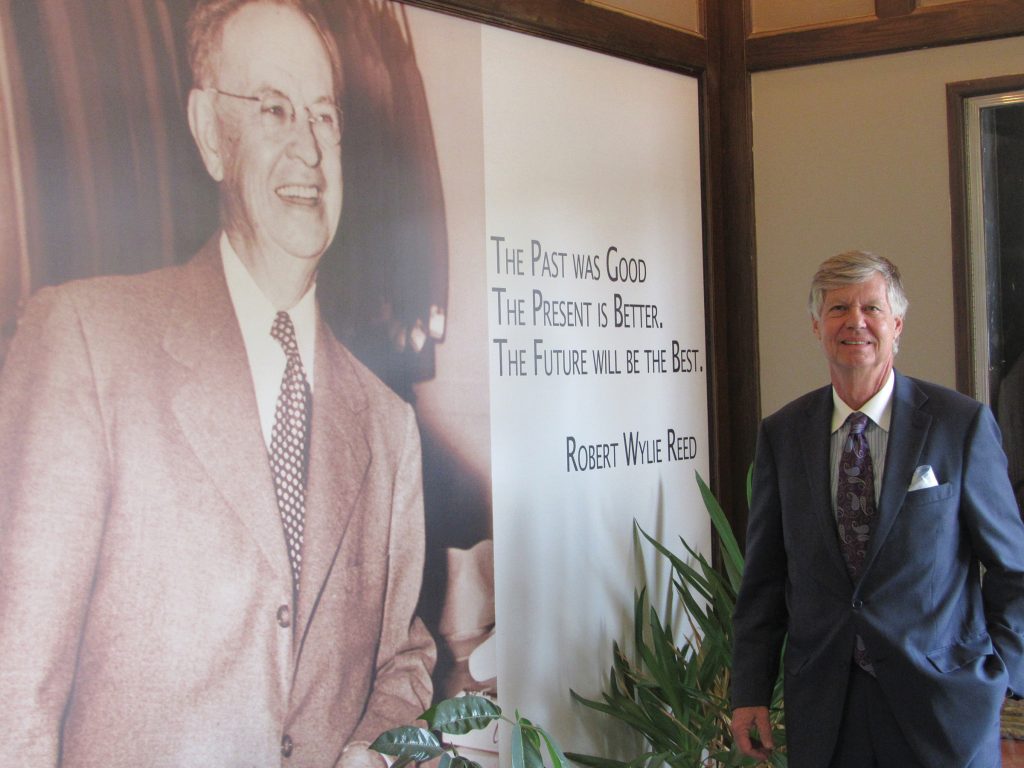
Established in 1905.
“I worked in the store as a boy but formally entered the business in 1980 after practicing law for several years,” says Jack Jr. “I became store president in 1987 and now serve as chairman as well. Our mission statement: ‘We deliver confidence, pride, and joy.’” Longevity secrets: • Treating our staff as No. 1 (and they make our guests feel like No. 1!) • An excellent team that feels a part of our store family. • A fully engaged family through the years with terrific leadership from our grandfather, father and uncle. • The financial resources to secure the brands and merchandise we need. • Strong community involvement and leadership by example. • A reputation for treating our vendors with courtesy and respect as true partners in our mutual success.
SIMON & SONS
NEEDHAM, MA
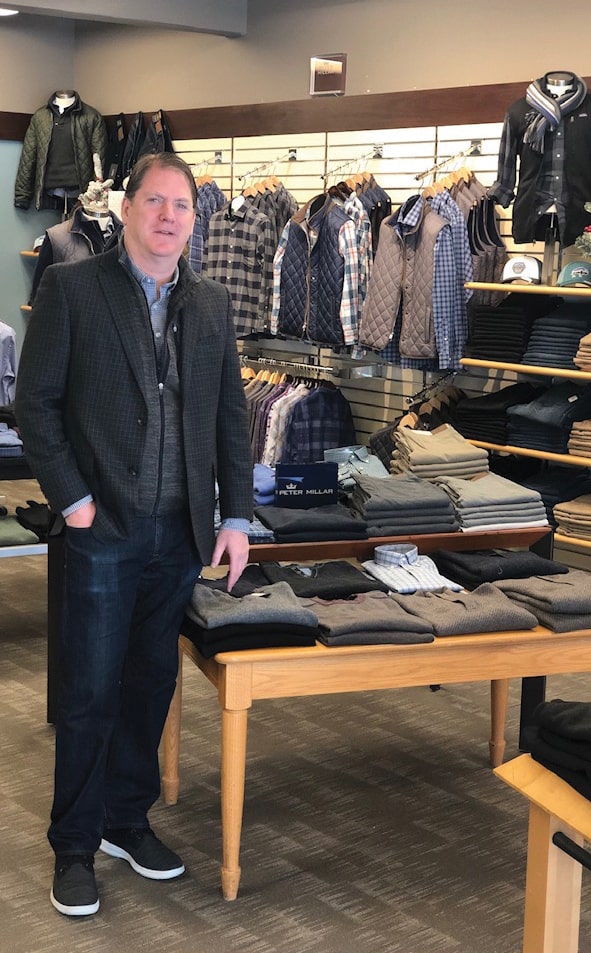
Established in 1905.
Current store owner Paul Simon is candid about how he got involved in the business.
“The store was founded in 1905 by my grandfather, Leo Simon. I got involved when I was 13 years old and my father, Arthur Simon, told me it was time to go to work.”
Simon is grateful for the close relationship he had with his grandfather, a Russian immigrant who was a tailor in his homeland and who built a business in the States based on his work ethic, tailoring skills, and outgoing personality. “I could never have started out the way he did,” Simon confides. “His first store was across from a bank. He would get to work at 7 each morning and the bank president took notice, eventually offering him financing to buy his building. I feel so fortunate to have worked with Leo for eight years starting when I was 13. How many people get to learn from a grandparent?”
Simon credits the store’s longevity to exceptional customer service that generates both loyalty and word-of-mouth referrals. “We sell great brands for a fair price, and our customers feel comfortable in our store. We take a personal interest in each person who walks through the door. We know their names, where they’re from, and for what occasion they want new clothes. We stay current with fashion and provide a variety of styles for our wide-ranging customer base. We also have one of the largest boys’ suit departments in New England, so we can dress young men (future customers!) for their Bar Mitzvahs, proms, and then weddings.”
What’s driving sales these days, says Simon, is sportscoats from Jack Victor and Peerless, jeans with stretch from AG and 34 Heritage, five-pocket pants, quarter zips and upscale sweatshirts from Tommy Bahama and Peter Millar.
Another factor, he believes, is mall fatigue. “We’re a local hometown shop,” he maintains, “and fortunately, not everyone wants to shop at a mall.”
UWM MEN’S SHOP
(FORMERLY UTAH WOOLEN MILLS)
SALT LAKE CITY, UT
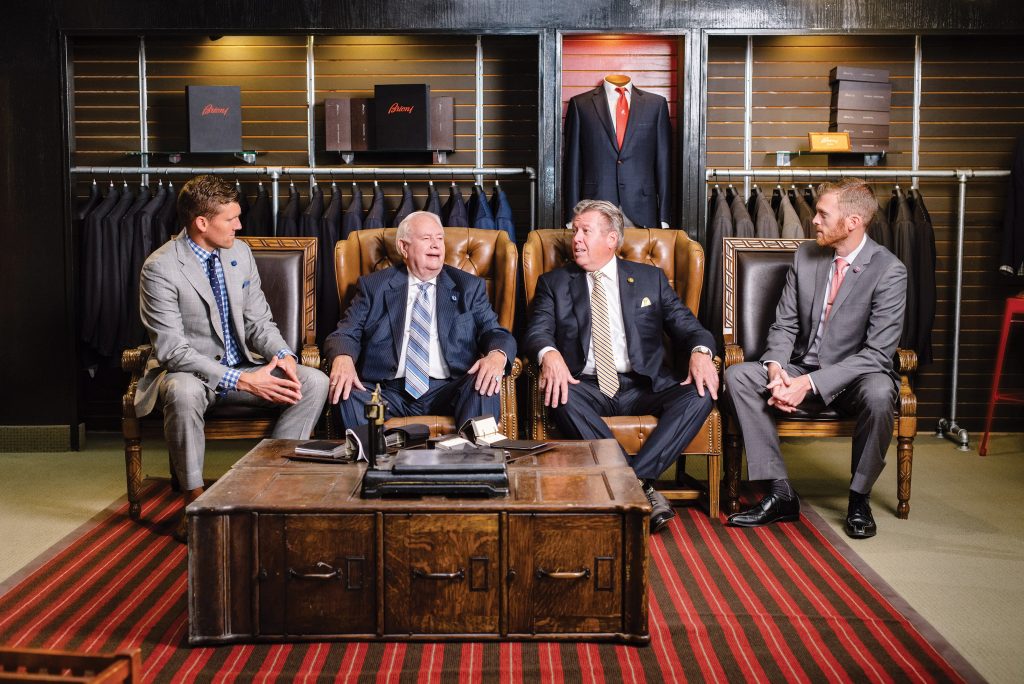
Established in 1905.
BJ Stringham has never forgotten a lesson he learned from his grandfather: “If we can’t pay for it, we don’t buy it!” This mantra has kept the store in good standing with vendors, allowing strong partnerships that have served both sides well for more than a century. More recently, however, the store is focused on building its own brands.
BJ shares some history: “We changed our name from Utah Woolen Mills to UWM Men’s Shop last year in an effort to better reflect who we are: a modern upscale apparel store that sells the world’s finest clothing, specializing in brands that are not widely distributed. It started out as woolen mill; in the early 1920s, my great-great-grandfather and his son bought into it, becoming leaders of the company. My grandfather Briant Stringham bought the majority of the stock and became CEO in the late 1970s; the store has been in my family ever since.”
BJ explains how his father Bart was instrumental in changing the model. “He took our mix to the luxury level. When one of our competitors closed, a customer suggested we start selling Oxxford suits; our top brand had been Hickey Freeman. So, my dad took that leap of faith, learning that quality, combined with exceptional service, can sell clothing without sales. So we now offer the highest quality products serviced by a master tailor. We don’t ever discount, which is very unusual in today’s business environment. My brother Brandon and I run the shop with a focus on creating the best experience a man can have in a clothing store. And we’re having fun doing it!”
Known for creating lasting relationships that transcend clothing, the team at UWM is as proud of these friendships as fulfilling their customers’ wardrobe needs. “There are no shortcuts to longevity,” BJ insists. “You just go to work every day and try to figure out what your customer needs! But we’re doing it in an exciting way, nurturing new brands that are exclusive to us, curating assortments, training young enthusiastic sellers on how to give exceptional service. We also just bought a building in order to try something entirely new: We’ll be selling an opening price clothing brand but with our taste level, selection and service. We have so many fresh ideas: I’m now describing our store as a 115-year-old start-up.”
NORTON DITTO
HOUSTON, TX
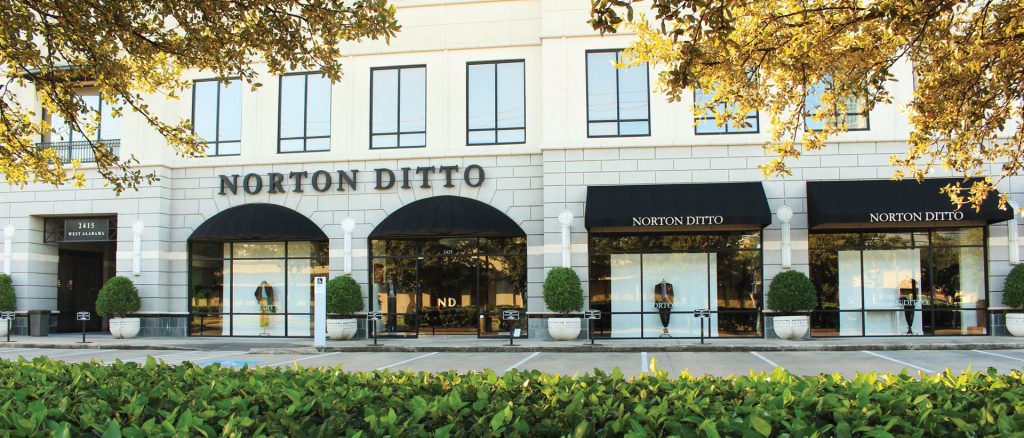
Established in 1908.
For Norton Ditto owner Dick Hite, the men’s retail business is a wonderful way to sustain and intensify the many friendships he’s cultivated over the years. “I love meeting new clients and developing friendships,” he confides. “And being involved in the city by serving on charitable and community boards. I’m always hoping to make a difference.”
In fact, Hite attributes the store’s longevity to his and his team’s relationships with loyal customers. “Offering quality products and exceptional service is a given, but it’s much more about the relationships….”
Fortunately, in business, relationships are often nurtured on the golf course, and golf just happens to be Hite’s passion, second only to his family: beautiful wife Ginger and their five children. A competitive golfer, Hite is frustrated that his 5 handicap is the highest it’s been since age 16.
What’s driving sales now? “Houston is a fairly dressy city so we’re still selling suits; sportcoats sold well across the board. Also, Eton shirts, Peter Millar Collection, Alberto golf pants (for fall, we sold 150 at $340), St. Croix travel blazers, cashmere sweaters at all pricepoints, Marcoliani “no show” socks (displayed at the checkout counter, we sold 225 pairs at $20 in just December!) and Tumi quilted outerwear.”
For Norton Ditto’s 110th anniversary two years ago, Hite organized a reunion party for every past employee he could track down. He rented the building that once housed their first store (now a bar) and honored more than 135 people, the oldest of whom started working at Norton Ditto in 1956. “Guests included fellow Houston retailer Bill Walker (who had worked at the store for 14 years), the CEO of a major Houston corporation (who had worked at the store during high school and college), lawyers, teachers, and entrepreneurs who had all worked at the store. It was a wonderful celebration of the people who made it happen!”
NORMAN STOCKTON CLOTHIER
WINSTON-SALEM, NC
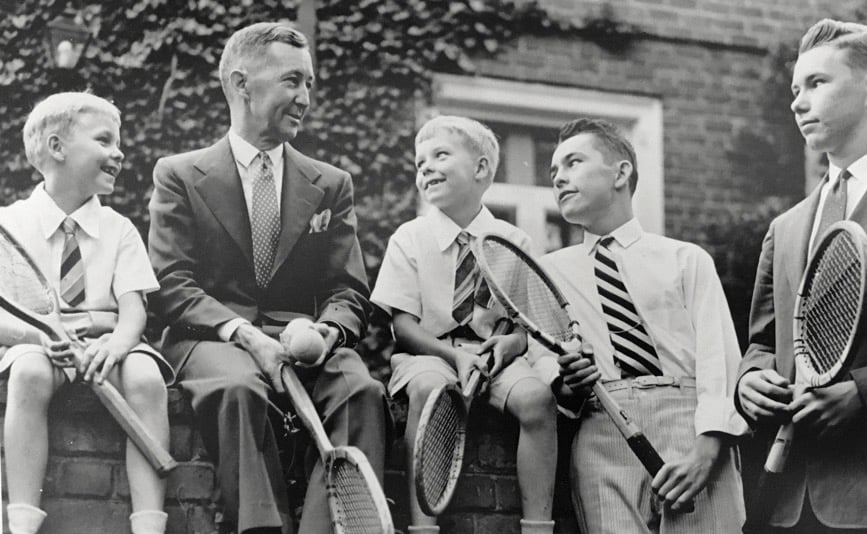
Established in 1909.
Norman Stockton, right out of UNC, bought into the Mock-Bagby clothing store in 1909 and made it his own. His son Dick joined him in 1954; Dick’s son Hill in 1982.
Hill Stockton is not uncomfortable talking about why they closed the store for a few years. “We closed because of some interesting-sounding opportunities that came our way. But as I told my industry buddies who said I was crazy to reopen, ‘You may be having more fun than you even realize.’ At the end of the day, we’re all in this business because it’s in our blood, because we love what we’re doing, and because of the genuine relationships we’ve established, with both our customers and our industry colleagues.
“We’ve been successful by paying attention to our customers and their needs. My grandfather sold 1,000 felt hats a year. My dad sold hundreds of suits a month. Neither of them sold any five-pocket pants. Bottom line, the one thing that has passed from each generation to the next is giving our customers (friends) great service and selling them clothing at a good value so they become customers for life. So far, that’s worked for 110 years.”
DAVIDSONS
ROANOKE, VA
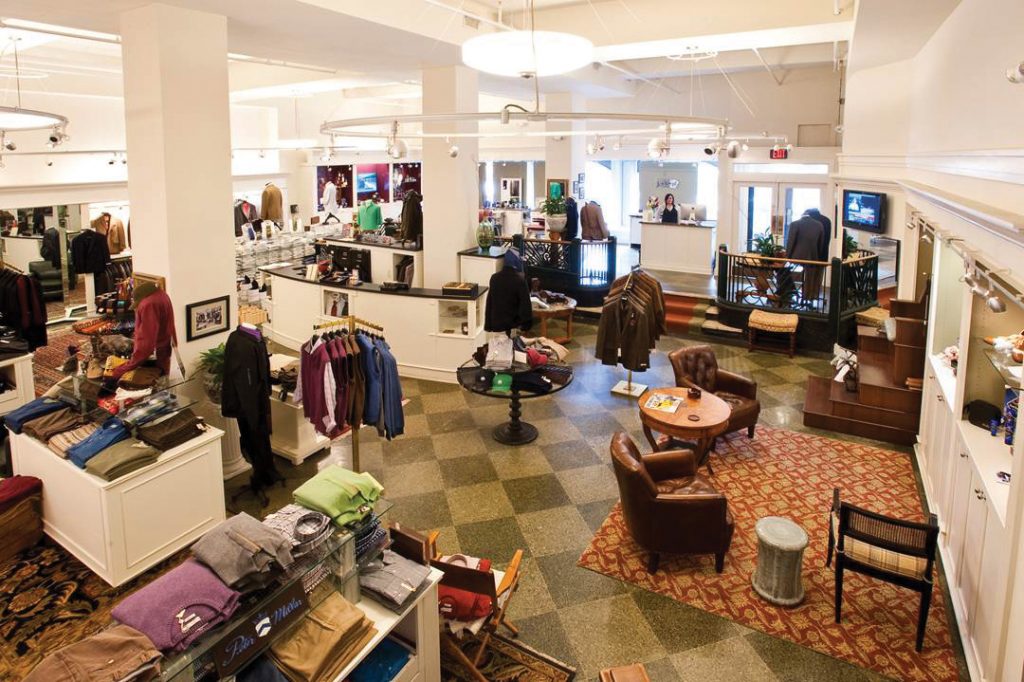
Established in 1910.
In 1900, an 18-year-old Joe Davidson left the bleak prospects of his native Lithuania in search of a more promising life. He came through Ellis Island, started out working at a factory in Providence but wound up in Roanoke, VA, where he took a job at a local clothing store and married the owner’s daughter. With encouragement from his new wife Daisy, Joe soon decided to open his own shop, a men’s clothing business that has evolved into one of America’s finest specialty stores, now run by third-generation Larry Davidson.
According to Larry, the longevity of the store can be attributed to several factors, the first of which is “dumb luck” e.g. no competition within two-hours of the store. “With custom and made-to-measure driving sales, clients have to come to us for fittings. But business today is erratic: There’s no rhyme or reason, for example, why we had a miserable September and a wonderful November when we didn’t do anything differently. Or maybe I’m just not smart enough to figure it out.”
But don’t let his humility fool you: Several wise moves have contributed to the store’s success, like adding a leased men’s grooming salon at the store’s front landing and mezzanine. “We have female operators giving haircuts, facials, manicures, pedicures in front of big-screen TVs; this keeps traffic flowing and customers coming back!” Another factor: Larry’s sincere commitment to support the community via personal involvement in numerous nonprofits, a sense of community service and civil responsibility that came from his dad. “Our home is a loft above the store where my wife and I host meetings and events for various organizations. It’s all part of a philosophy to give back while enjoying the personal relationships we’ve established in business, and to keep life stimulating.”
When he’s not in the store, Larry stays in shape by running and bicycling. While none of his three sons has chosen to follow him into the business, he expresses little concern about succession. “As long as I’m enjoying what I do, I hope to keep doing it,” he explains, adding that selling to a talented employee could be a viable option down the road.
MITCHELL’S
CAMPBELLSVILLE, KY
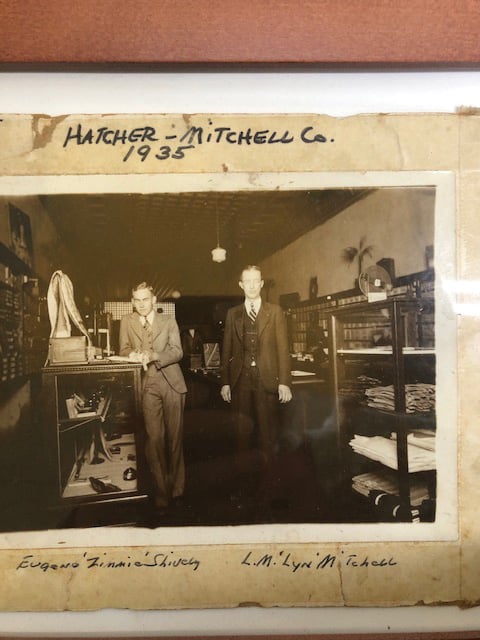
Established in 1910.
Despite a tragedy in 1917 involving the murder of co-founder Daniel Hatcher, the Mitchell-Hatcher family strived to keep the doors of Mitchell’s open. Laura Mitchell’s grandmother, Mattie Mitchell, stepped in and did alterations as well as bookkeeping, while her grandfather sold clothes. After World War 11, they came back to Kentucky and took the reins in 1946. Mitchell’s father Billy and his brother Lynwood ran the business until 1990, then Laura Mitchell took over.
Fortunately, the store’s old-world charm has withstood the winds of change, maintaining the same building since 1920, and the same fabulous store manager, Billy Joe Douglas, for more than 25 years!
Mitchell explains that adding three womenswear lines in 2010 was a turning point; “What can I say? Women love to shop!” The establishment is also a compelling study in giving back to the community. Notes Mitchell, “Our whole shop is made up of folks who truly care: We’re a collection point for luggage for foster kids, for blankets and clothing for the less fortunate. We work diligently with area churches in drug recovery programs. Big chain stores can’t do these things at the same level of personal involvement.”
RAFFKINDS
AMARILLO, TX
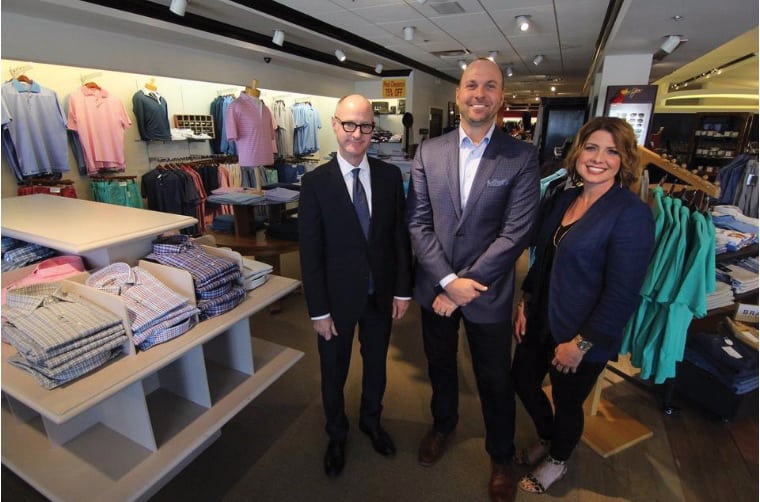
Established in 1910.
The store was established in 1910 by Eli Raffkind, passed on to his son Morris and then to his son George. Just three years ago, the store was purchased by three long-time employees: Dave Alee had worked there 40 years, Adrea Pearson 26 years, and Chad Westenburg, 23 years.
Explains Chad, “We didn’t implement any major changes upon buying it: We didn’t have to; nothing was broken. George had entrusted us with running the business for the previous 10 years…”
Chad describes men’s business as healthy, driven by today’s modern uniform: five-pocket pants, sportcoats, and dress sneakers. “We sell trim-fit pants with stretch even to big guys. There’s now stretch in practically all our bottoms and shirts. But I do see some change coming: a single forward pleat coming back; more pants with cuffs. Last year was tough but business has been good this year: steady increases each month. Today’s business is 50 percent sportswear, 30 percent tailored (H. Freeman, Samuelsohn, Oxxford, Byron) and 20 percent furnishings. We’re not the most fashion-forward store: trim-fit is still new here, as are medium blue suits. And while made-to-measure is a factor, it hasn’t grown proportionately since we do so much trim-fit clothing off-the-rack.
“What I’ve learned in 23 years here: We’re not in the clothing business, we’re in the relationship business. We’re genuine friends with our customers; we’re always hosting events and making this a fun place to shop!”
THE BIG STORE
TIFTON, GA
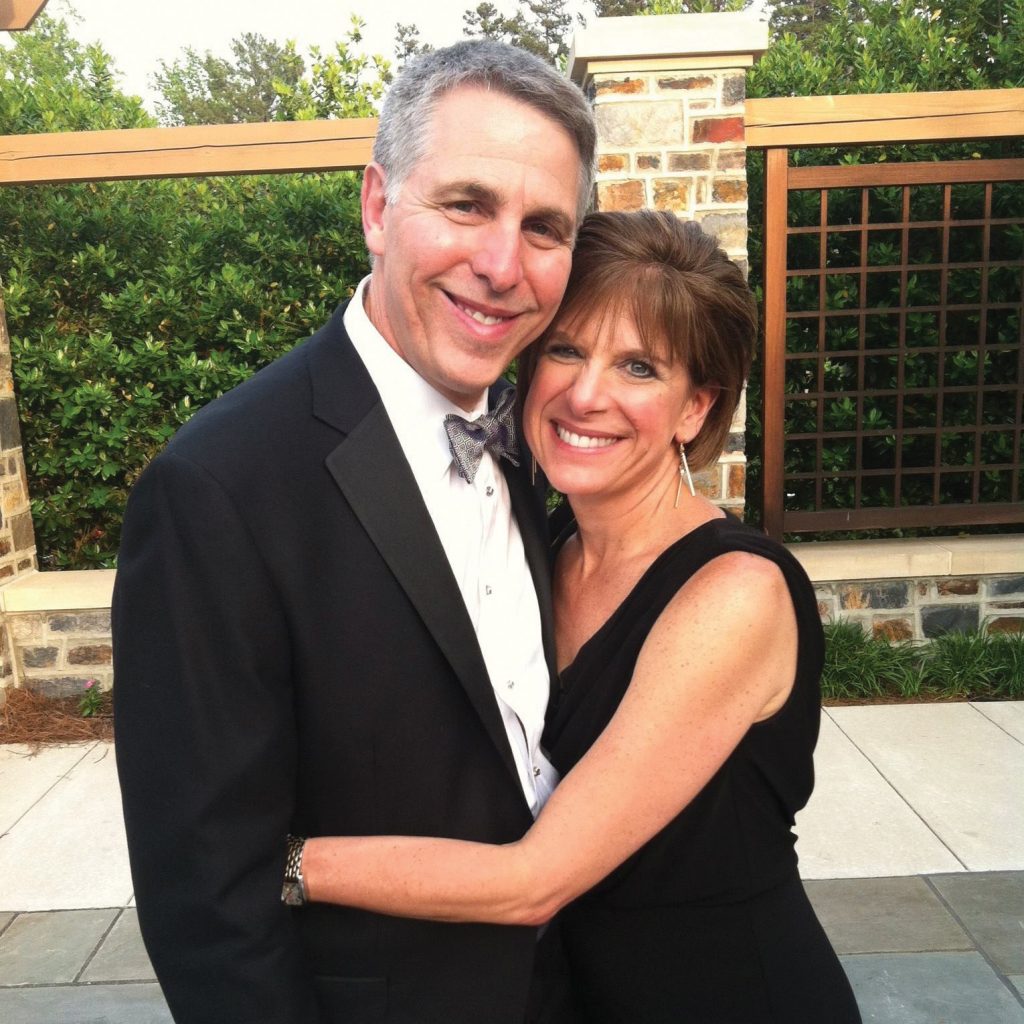
Established in 1910.
Mission statement: “To continue serving our community guided by our family’s old-fashion business and personal values.”
Longevity secrets: “It’s a combination of luck, love, and fortitude. We try to focus on our greatest assets: our relationships with our customers, vendors, family, employees (who are an extension of the family), and our credit.”
Love most about the business: “Paying personal and sincere attention to each of our customers to make them feel great about themselves and come back for more. Keeping old friends and making new ones along the way.”
What did you learn from your parents Marvin and Lynette (who worked in the store for 50 years)? “That our strength is in our values, beliefs and work ethic. That we need to work hard and be kind.”
What’s driving sales this season? “Our growth has been in men’s sportswear and tailored clothing.”
What’s needed for business to improve? “That’s the toughest question in the world. First, we must reinvent ourselves every season. Second, we need for our partners, the manufacturers, not to be in competition with us, but to be working with us toward a common goal. Finally, for the good and welfare of all: The consumer, state and local leaders must understand that for every dollar spent via internet shopping, dollars to the local and state economies are lost forever.”
AMITYVILLE MEN’S SHOP
AMITYVILLE, NY
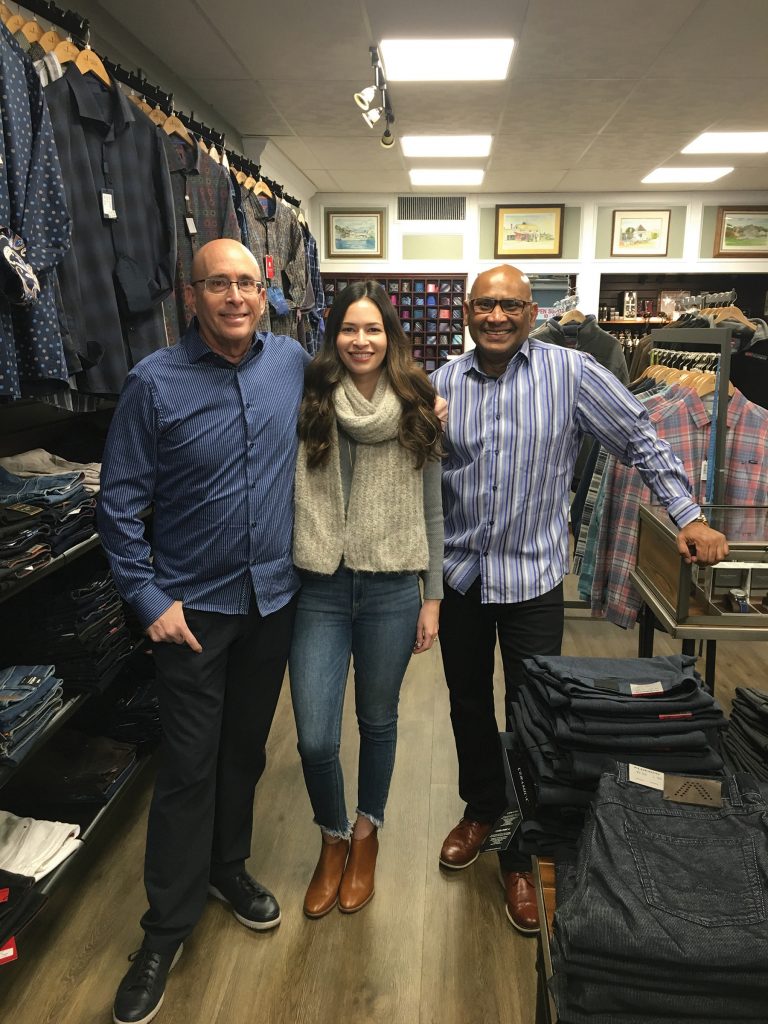
Established in 1911.
Warren Cohn joined the family business part-time doing hems at age 13; he continued full time after graduating college in 1978.
His mantra for competing in an oversaturated market: “Satisfy the customer’s every need, then offer to do more.” He shares a cute story: “Once on the island of Virgin Gorda, I noticed a gentleman wearing a familiar swimsuit style. I noticed he’d forgotten to take off one of the tags and pointed this out to my friend. The guy overheard me, then turned around and glared. He turned out to be a customer who purchased the swimsuit from me a week prior. I bought him a beer, and we both had a good laugh.”
Cohn is a firm proponent of the jeans-and-sneaker ensemble that has become today’s uniform. “Premium denim continues to be the main driver for us, mated with an untucked shirt and a pair of fashion sneakers or wing-tip shoes. Once someone is outfitted in the comfort of a stretch jean, untucked shirt, and shoes with sneaker-like comfort, then we suggest a sportcoat as the finishing touch.
“I think survival for independents is a three-step process: 1) Convince customers that it pays to deal with experts who can give them correct wardrobe advice, which doesn’t happen online; 2) Emphasize the price/value relationship of everything you sell; and 3) Do everything in your power to get customer referrals.”
Cohn’s daughter Alexa, who interned at Randa after college, recently became the fourth-generation to join Amityville Men’s Shop, boding well indeed for their future.
MARGOLIS MEN’S STORE
JACKSONVILLE, NC
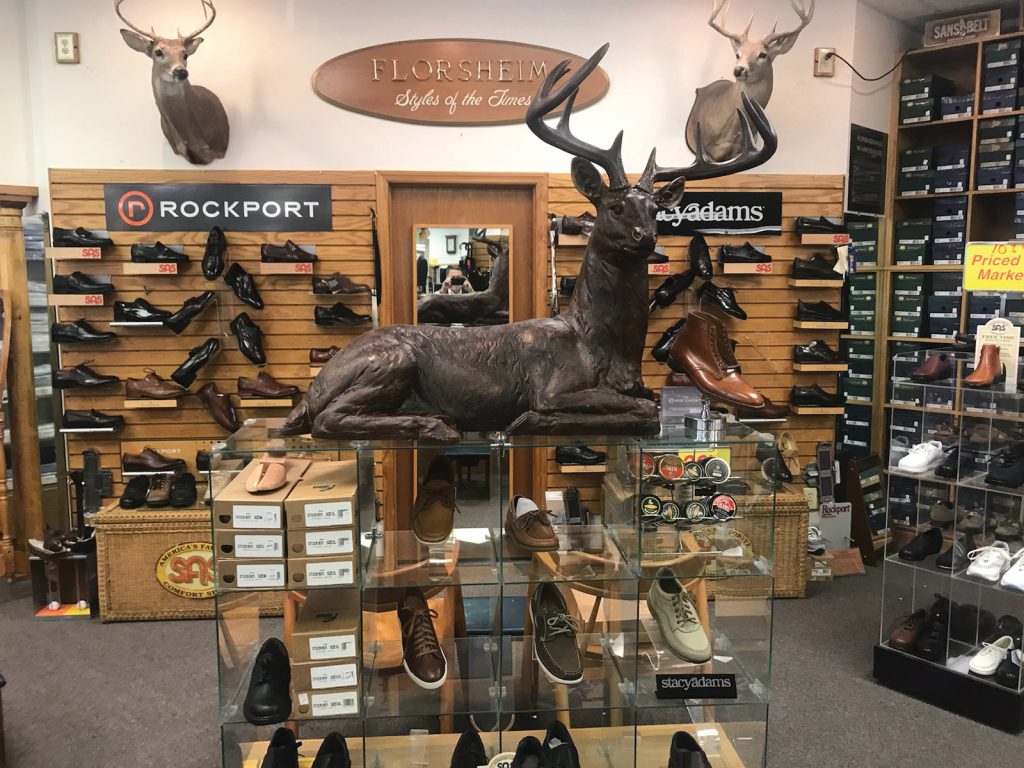
Established in 1912
Max Margolis founded his downtown menswear store in 1912, soon expanding to a general merchandise store specializing in clothing. Current owner Lloyd Koonce bought the store from Max’s son Leon in 1986. In 1994, he relocated to its present location in Westwood Village.
Clearly, Koonce was destined for retailing, having spent many years as a manager at Belk’s and also at two different specialty stores. His focus now is tailored clothing; he keeps an inventory of 500+ suits ($275 retail and up) and prides himself on “Fitting anyone who’s a size 80 or under….” The store does all its own tailoring/alterations and provides finished garments in 24-36 hours. “My customer wants it yesterday,” he confirms. Driving sales now is formalwear, dress clothing, and footwear.
Koonce shares another success secret: He buys direct from European factories and carries a few top-quality exclusive brands (clothing, hats) that sell very well for him. “The challenge today is all the online competition but you can’t really buy a suit online. I believe customers are learning that.” Koonce’s daughter Amanda works with him in the store and is “next in line for the throne,” followed, perhaps, by her two college-age sons, Matthew and Patrick. “They’ve both worked in the store and have picked up a lot of knowledge,” notes Koonce.
RODES
LOUISVILLE, KY
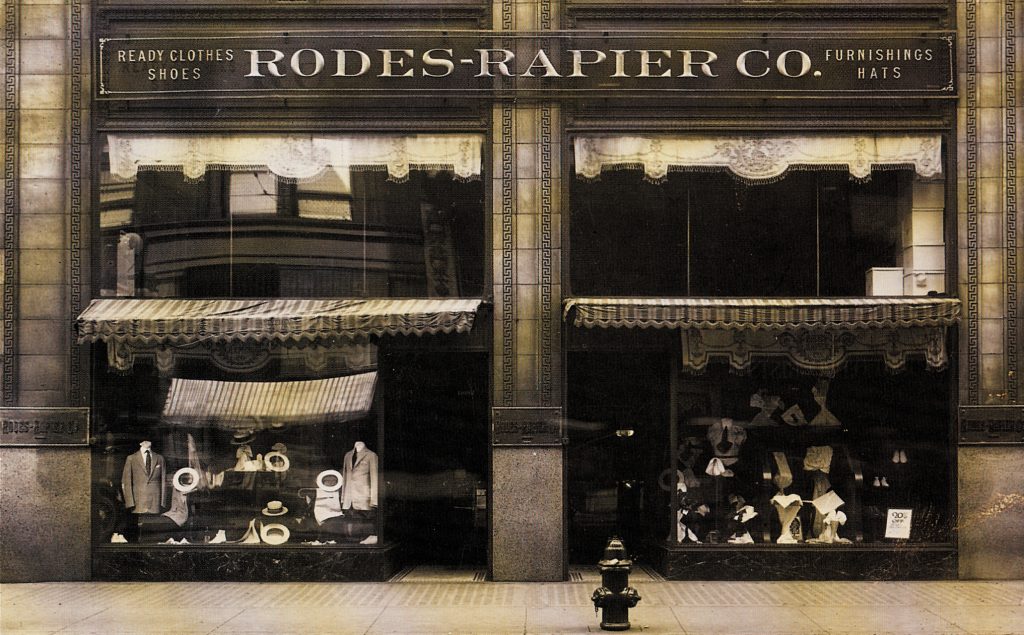
Established in 1914.
Rodes co-owner Howard Vogt remembers the advice he received from Rodes’ former owner (his father-in-law) Lawrence Smith. “At the end of his life, I was trying to get him to share some tricks of the trade. After all, I’m a CPA, a numbers guy, and this business is more nuanced than numbers. After three hours of talking about staffing, inventory, partnerships, etc., I asked him to sum it up in just one sentence. His response: ‘Just don’t f-ck it up!’ So those are the words I try to live by!”
Relating that Rodes once had seven stores, 100 employees and a huge uniform business with Continental, Southwest, TWA, DHL (which they sold to Cintas in 2000), Vogt admits how much harder business is today than it used to be. “Store owners work long hours for not a lot of money. Most do everything themselves and then run out of steam. And with men dressing more casually than they used to, we need to sell lots more $175 denim jeans than we did $4,000 suits….”
That said, Rodes’ menswear business is good—up double digits, with 40 percent still in tailored clothing. “We’ve been working hard at it these past three years. Women’s is a different story: A few of our top sellers recently retired. But we’re in Louisville, with no A doors of major department stores, so we do OK.”
Vogt recalls how they first got into the women’s business: “Jacobson’s was going out of business so there were all these talented sellers suddenly available. I spoke to Lawrence who wasn’t interested, saying ‘We’ve got enough problems with men’s, forget women’s.’ But we hired these sellers, added women’s and it’s been a real plus, now contributing as much volume as menswear.”
As for a succession plan down the road, Howard and Susan’s 20-something son Howie has an intense passion for outdoor education. “He truly loves the outdoors,” says Howard. “I don’t think we’ll ever get him to work in the confines of a store.”
HUBERT WHITE
MINNEAPOLIS, MN

Established in 1916.
Hubert White’s current owner Bob White, grandson of founder Hubert “Bert” White, started out doing stock work at the store during breaks in high school. Following his dream, he graduated from the University of Denver law school; he was interviewing for legal jobs when his father suggested that if he were ever to join the family business, this was the time. Forty-five years later, White has never regretted his decision.
The store is known for its quality merchandise and exceptional service. Asked what it takes to survive more than a century, White responds “a huge amount of luck!”, explaining that you need to be in the right city at the right time with the right team. “We all have nice merchandise,” he acknowledges. “You need the right relationships and realistic expectations. You need to understand your community. You need a staff that respects one another. Most importantly, you need to choose the right team leader. I’ve been fortunate to have Brad Sherman working closely with me for more than 35 years…”
Says Sherman, “It’s quite a partnership: We’re the same person times two. You could best describe us as survivors and strivers.” More specifically, he describes White as “numbers-driven, loves being the devil’s advocate, thoughtful, see the road ahead better than most, competitive, and somewhat cautious: He doesn’t want to be first in the water.” As for a self-description, Sherman admits he can be overly enthusiastic, but he loves big ideas and the power of new.
Asked what he’s learned from his years in the business, Bob White doesn’t hesitate. “The menswear business is a ton of fun. The luxe part of the industry reflects a rich and fulfilling lifestyle, and we are fortunate to taste a bit of it. There are lots of talented, hard-working, creative individuals in our industry who are in the game because of their “passion for fashion.” For stores like ours, New York and Milan are the centers of the menswear universe. These cities fuel the passion. Finally, in menswear, there’s always a ‘new kid’ on the block. Sometimes these emerging brands are game-changers, but most often they start out like a rocket ship but rarely have the fuel to finish the trip.”
Asked what he’d do differently if he could start over, White is thoughtful. “I wish I’d been more collaborative and a better team builder.”
KANNON’S CLOTHING
RALEIGH, NC
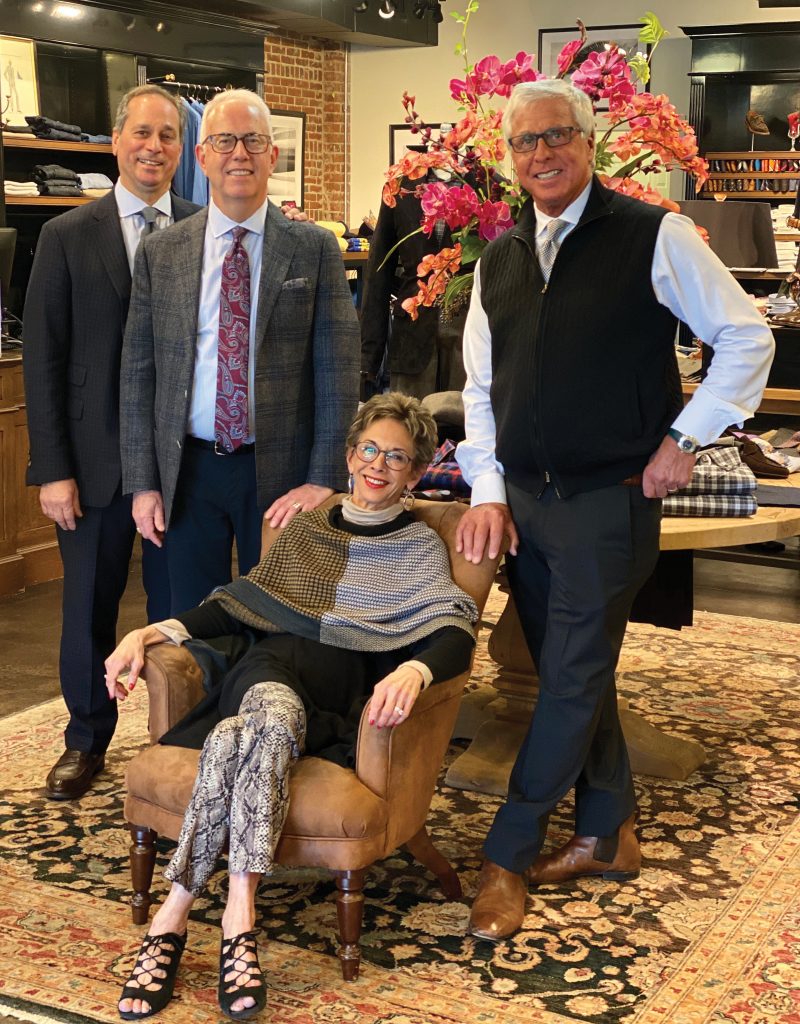
Established in 1916.
Kannon’s founder Isaac George Kannon, an immigrant from Lebanon, started his business by peddling quality goods from a backpack; he later upgraded to a horse and buggy and in 1916, after he was able to send for his wife and kids, he opened a store in Wendell, NC. A century later, the horse and buggy are gone but the work ethic has been passed on. The sprawling menswear store, now in Raleigh, is led by third-generation George Knuckley and Mary Kathryn Phillips; they also run separate men’s and ladies’ stores in Raleigh’s nearby Cameron Village.
“The consumer is shopping differently, especially millennials,” notes Knuckley. “But we’ve added more contemporary lines and we’re buying our regular lines with a younger spin so we’re capturing young customers. That said, we still sell lots of suits and sportcoats (both tailored and soft): I’d say tailored clothing is 55 percent of our men’s business, 25-30 percent of which is custom. And we, of course, showcase our clothing with all the right accessories, sportswear, and furnishings.”
Mitch Sugar (one of Kannon’s star sellers) expresses some concern about the increasing number of vendors selling direct. “It’s a problem. We’re looking for more brands that want a symbiotic rather than a parasitic relationship. We’d love more boutique lines, and even private labels, which are admittedly hard to acquire without huge orders.”
Yet Kannon’s business is flourishing, and the team is optimistic about the next 100 years, pointing out exceptional customer loyalty from repeat customers of various generations. “We’re fortunate to be so close to downtown Raleigh where a lot of young people now live. We’ve got a sizable customer base that’s 40-and-under, but of course, we want more.
“Our focus remains exceptional service and customer satisfaction,” he concludes. “I think the more business that’s done online, the more people appreciate a personal relationship with their local clothier.” Knuckley also shares his pride that his niece, a recent graduate in textiles from N.C. State, is the first of Gen 4 to join the business. (Her great-grandpa Isaac is surely smiling from heaven!)
PENNER’S MEN’S STORE
SAN ANTONIO, TX
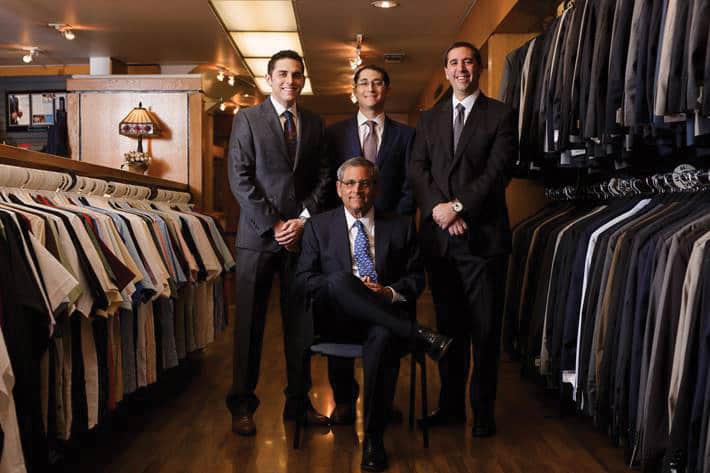
Established in 1916.
All three of us grew up in this business watching our fathers work six days a week and attend buying shows across the country. We’d work summers and holidays, helping wherever we could. After Mickey passed away in 2002, we knew we’d come into the business to help sustain the family legacy.
We feel fortunate that we own our building and land. The storefront has beautiful display windows, 42 parking spaces, and over 9,000 square feet of retail space. Penner’s is located in the center of a thriving downtown. The majority of our business is local traffic within a 50-mile radius but we also enjoy tourist and convention visitors.
Longevity secrets: After 103 years in business, we’ve stuck to our old-fashioned roots: providing first class service, stocking a large selection of quality merchandise, and providing free alterations on ALL items purchased in the store.
We’re fortunate to have an experienced team. Each week we go over all new arrivals and educate our staff on how each brand fits (we have our sales associates try everything on to truly understand differences in fit). With more product knowledge, our sellers have a better chance of getting the right size and style for each customer.
Competitive advantages: 1) Free tailoring – We have seven full-time tailors who work on suits, coats, shirts, and pants. Any item purchased from our store is custom fit our customer’s body at no additional charge. 2) Specialty niche items – Both online and in-store we specialize in Guayabera shirts, all custom made for our store in Merida, Yucatan, and Panama with our exclusive fabrics, design, and fit. 3) Growing web sales – Our internet business has been growing. Our website acts as our front door and also generates a revenue stream. 4) Strong inventory – We carry all sizes in our store from 36-60 Reg. including Portly, X-Longs, X-Shorts, Longs, Regs, and Shorts. 5) Reorder! We believe a key to success is filling in. Every Monday we ll in our basics and have a strong yet controlled inventory in our store at all times.
Driving sales now: New brands. Lines that we’ve recently added include Brax, David Donahue, 34 Heritage, Hickey Freeman Sports Shirts, TailorRed, an On performance shoes. All these brands have been fantastic additions and are starting to take up more real estate on our floor.
Current Challenges: The toughest challenge is getting millennials to appreciate service and quality rather than shopping online. Another challenge is replacing our tailors as they retire. They are our heartbeat and provide our main competitive advantage.
SMITH & JAMES INC.
GREER, SC
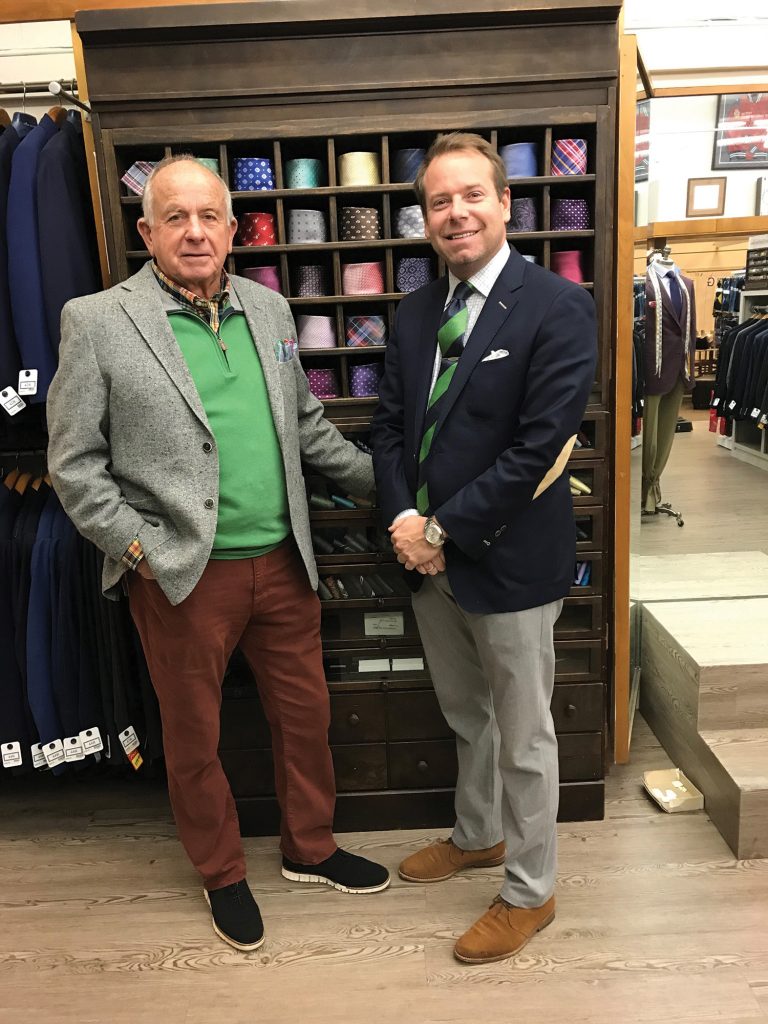
Established in 1916.
When the stars are aligned, independent specialty merchants with no succession plans might turn over the business to a dedicated employee. When Mr. Paul Smith, Sr. (second generation Smith) hired Bernard Price in 1961, Smith was like a second father, teaching Bernard everything about the menswear business and how to treat customers. In 1978, when Smith retired, he sold Bernard 25 percent of the business. In 1991 Bernard became sole owner, buying out Smith’s widow and son.
Brandon came to work at Smith & James after graduating with a retailing degree from the University of South Carolina. “I went off to college not planning to go into the family business. My father would give me $100 on a Sunday expecting it to last two or three weeks; I’d be out of money by Wednesday. LOL! I was told I had to get a job and decided to work at Lourie’s men’s store in Columbia, SC. Working for someone other than family was the best thing I ever did; I decided to change my major to retailing and join Smith & James after graduating.”
Brandon admits it takes a lot of hard work to keep Smith & James growing in today’s competitive climate. That said, they’ve opened a second location in Greenville, for which he credits his strong team. “My father and I couldn’t have done it without our devoted team.”
His longevity secrets: “My father has always kept young people around the store; we have to be open to change. He saw the dress-down Friday trend coming and adapted: We still sell a lot of suits, but not in the quantity we used to.”
As for gripes, Brandon admits he hates having to fight with the internet. “But it’s not going away so we just have to keep elevating our customer experience. Also, we need to build relationships with the right vendors who want to partner with us rather than compete against us. It would also be nice if these vendors who do sell online would create small packages not available online just for the specialty stores.”
When they’re not selling clothes, both Brandon and Bernard love restoring antique cars. “I’m currently restoring a 1960 Chevrolet Impala two-door sports coupe. This business doesn’t allow much time for hobbies, but cars are the best therapy for me to get my mind off the store.”
M. DUMAS & SONS
CHARLESTON, SC
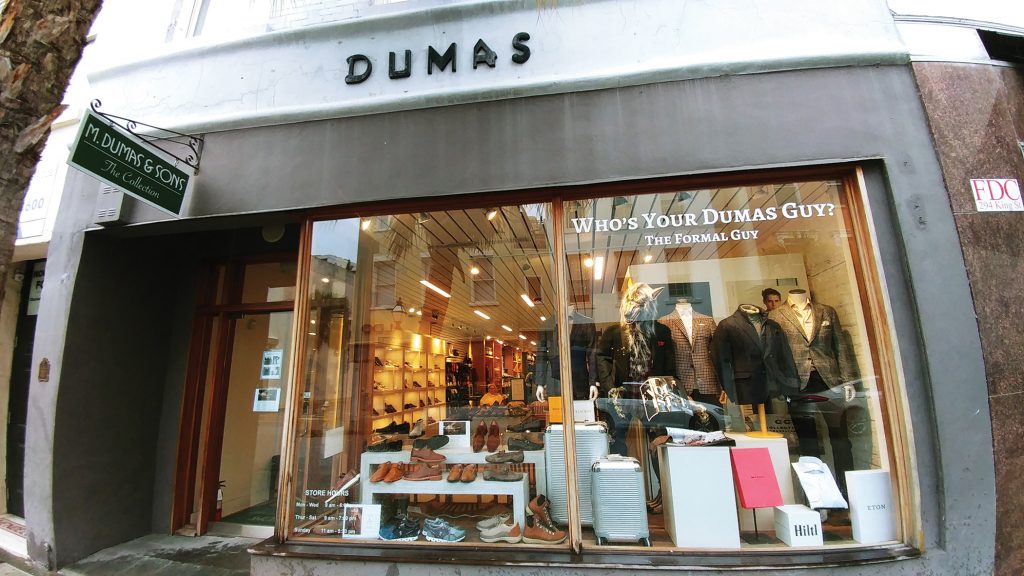
Established in 1917.
In his beautiful store on King Street, Gary Flynn shows off a framed collage of vintage “patches” from numerous local Charleston businesses for whom the store once made uniforms. “I think what’s most special about M. Dumas is our history, and our ability to evolve/change/morph with the times,” he says.
The store started out 103 years ago as a discounter, also selling uniforms to naval officers and local businesses, a way to remain relevant during tough times. “After WWII, returning soldiers wanted this brand call Levi’s so we brought in Levi’s, cowboy boots, hats, hunting and fishing gear. Then we moved into moderate sportswear: workwear and outdoor brands like Columbia; stack it high, watch it fly! The store was packed with merchandise, selling tons of units. David’s dad bought the building in 1974 and the third generation, (David and his brother, who he lost about 10 years ago) jumped into a fairly robust business, which grew quickly from $2.5 million to $10 million.”
According to Flynn, the store has always been a pioneer with new brands. “When we brought in Tommy Bahama, these were the first shirts to retail over $100. Although we’re in the South and not focused on outerwear, Barbour is huge for us. I believe we’re their largest independent specialty store account. We want to hold on to our heritage while moving forward.”
Flynn explains that early on, Dumas sold mostly sportswear. “What I brought to the store when I got here after 27 years at Nordstrom was a new focus on luxury tailored, brands like LBM, Kiton, Boglioli, Eleventy, Lardini. A few years back, a big sale for us was $4,000; now it can be $7,000 or $12,000. Even when we’re selling the same number of units, we’re generating much more volume.”
Flynn also talks about how Charleston is growing. “We get 45 new people a day moving to the Charleston area: they come to visit and fall in love with it. In addition, 50 percent of our business is with tourists.”
He credits his team, especially Price, Clark, and George, for the impressive growth in recent seasons. “They’re professionals who take the business seriously, not just in the store but also on the road. They’ve held catered invitation-only events in DC and Greenville. In DC, they set up shop in a restaurant for five hours of measuring guys for custom suits. In Greenville, they rented space for three days during the holidays; Clark had made advance appointments with customers to do all their holiday shopping with us!
“We have a second store in Mt. Pleasant—Southern Tide by M. Dumas & Sons—that’s 80 percent Southern Tide, 20 percent other brands. We’re working harder than ever doing things we never did before. For example, when a neighboring shoe store closed, we created a beautiful shoe shop in the front of our store with all the brands our customers had been asking for (Ferragamo, Tod’s, New Balance) as well as a terrific team of shoe experts.
“Another focus is on our website. We have out-of-town customers who’ve been shopping with us for years via phone or email; we want to make their experience even simpler. We have to think like our customer thinks if we want to be here for another 100 years. We’re focused on evolving the business with, and ahead of, what our customers desire.”
THE QUALITY SHOPS
NORFOLK, VA & VIRGINIA BEACH, VA
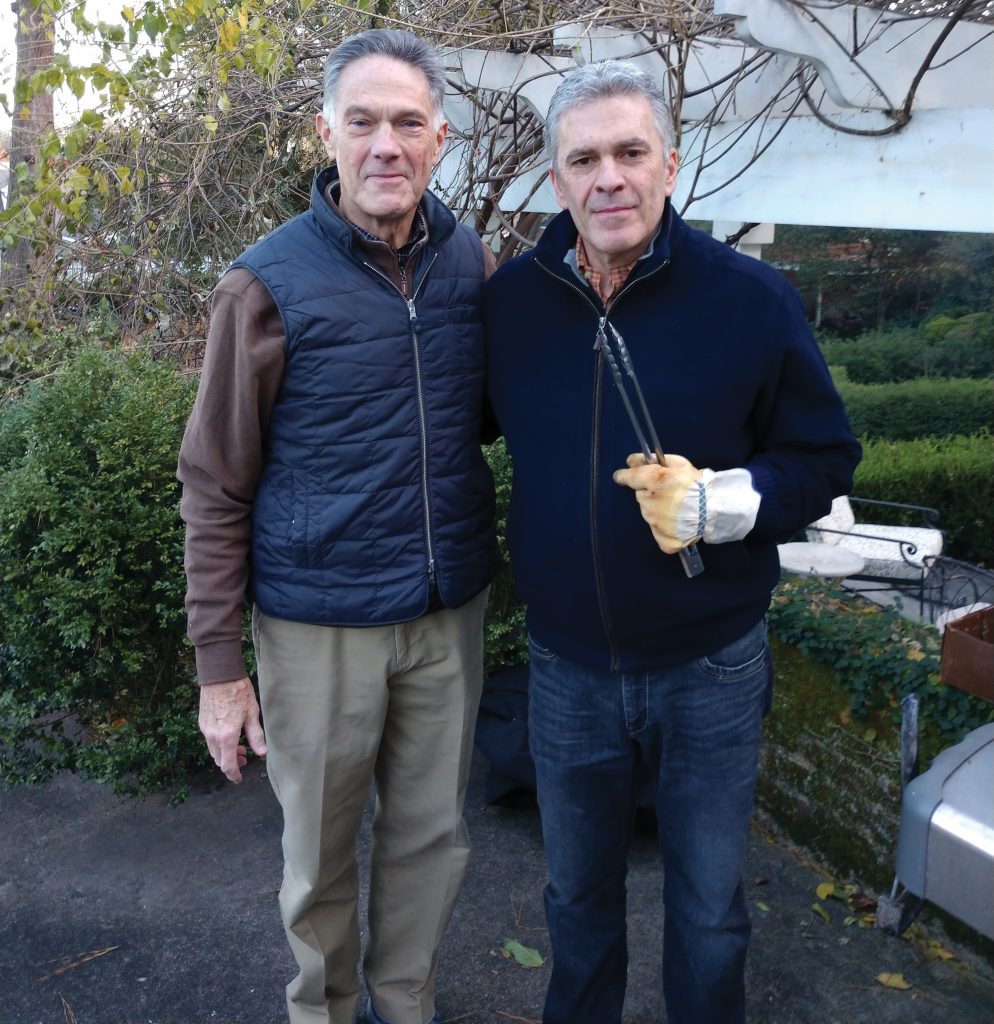
Established in 1917.
Like the children of many legacy store owners, Reid and Steve Rapoport always worked in the family business during summers and holiday seasons, both joining full time upon college graduation. They attribute the stores’ longevity to talented longtime sellers who keep in touch with their customers, and also to tasteful merchandise, strong presentations and effective marketing on social media and select print. Driving sales this season: casual sportswear, soft sportcoats, sweaters, and outerwear.
What Reid and Steve love most about the business: the relationships with customers and the quality merchandise. What they like least: the long hours. What they’ve learned: patience. And what they need for better business: more foot traffic!
Their interests beyond work include family, golf, boating, exercise and beach time. And while there’s currently no interest from the fourth generation in joining the business, hope springs eternal.
RIVERSIDE MEN’S SHOP
DEPEW, NY
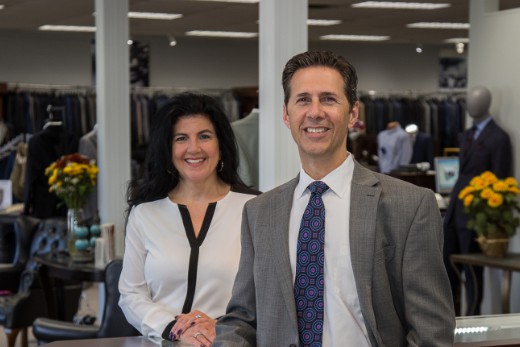
Founded in 1918.
According to current owner Natalie Neumann, the original Riverside Men’s Shop was in the Riverside section of Buffalo New York and boasted the city’s first air conditioning, first fluorescent lighting, and first glass plate doors. Natalie and her husband James (who owned a fine jewelry store in town a half-mile away) purchased Riverside Men’s Shop from Neil Ehrenreich, then 82 years old, when they learned the store was up for sale in 2007. They ran the two stores separately with the ultimate goal of merging them in an open floor plan, accomplished in 2017. The new 10,000 square feet shop is equally divided between fine jewelry and men’s; about one-third of their customers purchase in both and there are a goldsmith and a master tailor in-store at all times.
Clearly, Natalie was a perfect fit for the menswear challenge: she had studied men’s fashion at FIT and then worked for a five-store chain in Buffalo for several years. Most importantly, while she does the finance and marketing for both stores, she’s driven by her passion for empowering young guys with the right clothes. “To watch these young men transform, to see them gain confidence as they look in the mirror in a well-fitted wool suit, that’s my moment. And then to receive beautiful photos from the wedding, or to learn they got a great job wearing a new interview suit, what’s better than that?”
No doubt the jewelry/menswear connection is powerful: in addition to doing bridal shows and much marketing on social media, Natalie and James invest in radio spots, informing listeners how the store can fulfill their wedding daydreams. “Couples come in for their wedding bands and suits for their groomsmen (average sale: six to eight suits) and before you know it, the groom is back for a push present to celebrate a new baby.”
BAUMANS
LITTLE ROCK, AR
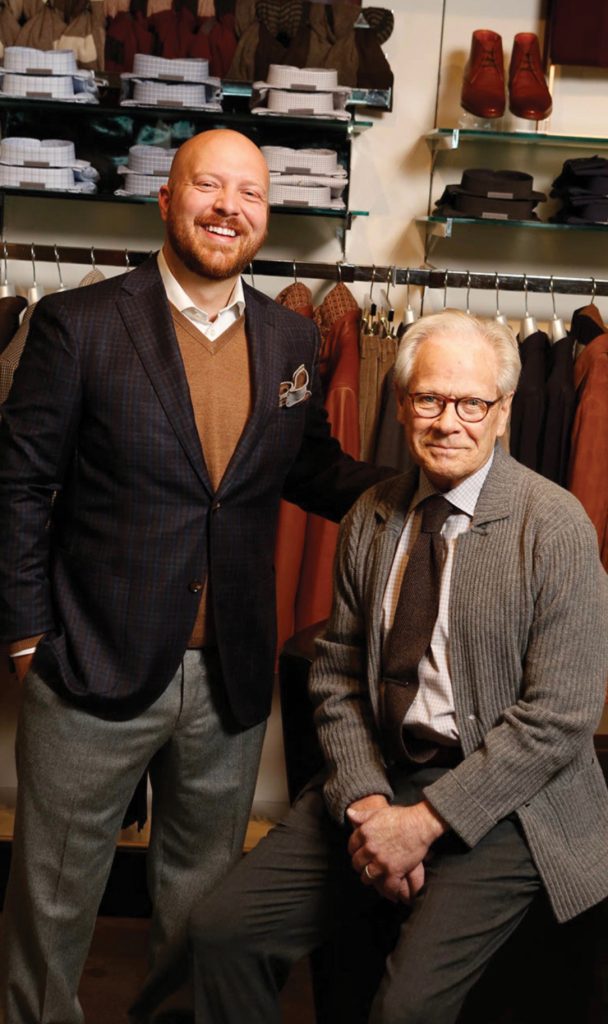
Established in 1919.
It’s been just a half year since Baumans teamed up with Walker Brothers and John Cole couldn’t be happier. “I’m obsessed with the mission statement ‘Serve Well.’ These two words perfectly sum up what we’re all about, and we work really hard to meet that standard every day.” (Editor’s note: Cole’s grandparents opened department stores for Walker Brothers in 1903…)
Asked what he loves most and least about the business, John is candid: “I love the relationships, the challenge of each new season and getting to reinvent often. The biggest problem we have as independent specialty stores is dealing with vendors who want us to represent them in a market and then end up competing with us online. Strategically, this is not good for the vendor: if they truly wish to utilize us as a distribution point, they need to work with us on appropriate pricing and/or product that’s not offered online. We are definitely having conversations with vendors about how to work more effectively together, and private label is becoming much more important in as many categories as we can effectively provide it.”
What’s driving sales this season? “As is typically the case with specialty stores, it’s special items that are not found everywhere. In addition, made-to-measure has been exceptional.” Asked how he plans to attract younger customers with Bauman’s clothing prices in the stratosphere, Cole responds, “We’ve been blessed to have attracted some exceptional young sellers who understand the ‘new’ market. Sportswear and denim brands have become increasingly important, of course, and J Brand, AG and Faherty are among those labels performing well.”
When he’s not working, John likes all types of sports, and golf when he has the time. (Admitting that he’s just “eye candy” since Thomas and Wayne do all the work, John is reluctant to send a photo of himself, giving all credit to his hard-working partners.)
METZGER’S
MOBILE, AL
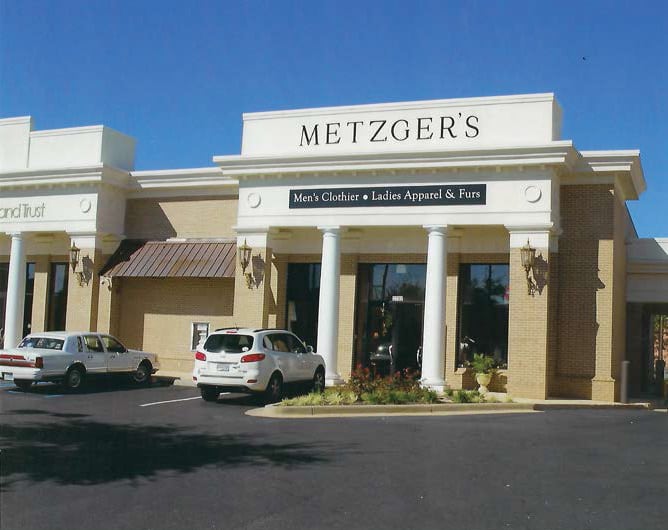
Established in 1919.
After 101 years of exceptional customer service and friendships, Metzger’s is virtually a household name in Mobile, AL. However, the store brings far more than fashion and style to this community: Leaders in community service for three generations, the Metzger family takes great pride in enriching their great city via outreach programs and other community endeavors that truly touch people’s lives.
As for business, Ken Metzger believes that personal contacts are essential to driving sales. “Our associates call their customers regularly about new merchandise, promotions, and special events. They routinely post on social media, each treating his job as if it were his own business, and taking great pride in this. e store advertises in local publications and participates in fashion shows out of the store. We send out mailers for seasonal trunk shows but employees also contact their customers personally to ensure turnout.”
Ken strongly believes that there’s no substitute for an in-person shopping experience. “It’s heartbreaking to see the decline of face-to-face retail shopping across our country. Future generations will suffer a void in ways they’ll never know. So as online shopping cuts into store traffic, changing with the times is imperative. While our personal mission here at Metzger’s remains customer service, we’re learning how to adapt to new generations to come.”
PURITAN CAPE COD
HYANNIS AND CHATHAM, MA
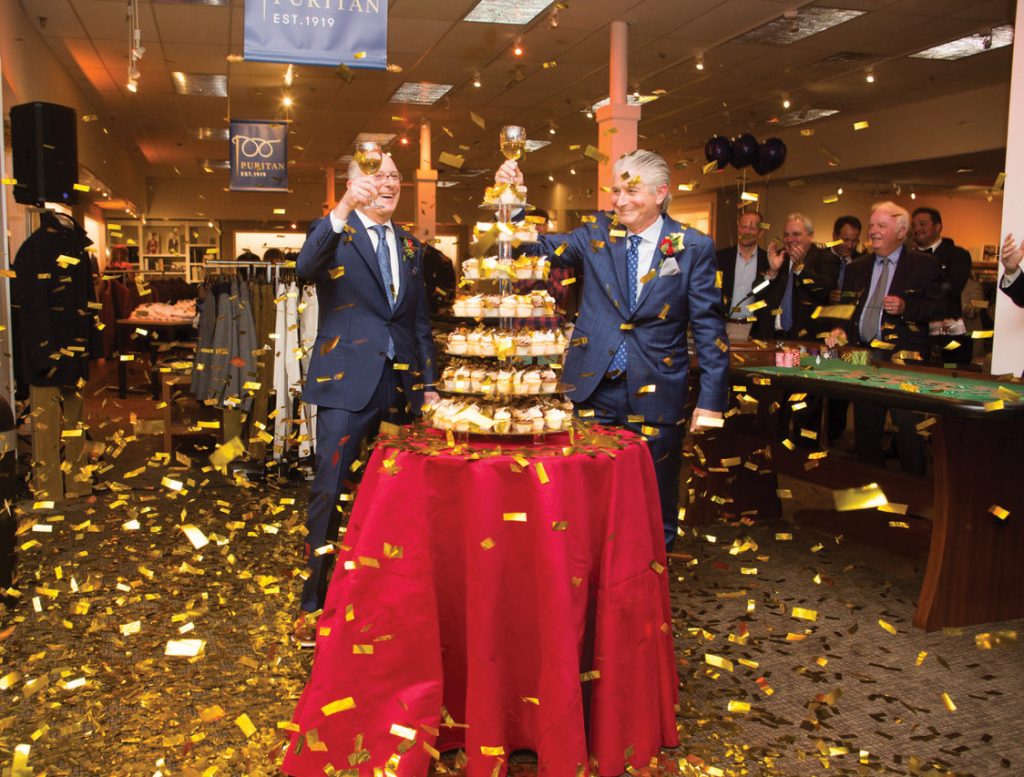
Established in 1919.
Rick and Jim Penn are first cousins, business partners, close friends and grandsons of Puritan founder Abe Penn, both joining the family business in the early 1980s. Jim handles merchandising and marketing; Rick does finance and operations. And as they like to say, they both take out the garbage! Their business today comprises four stores (including a Vineyard Vines shop), a luxury day spa (added in ’08), and two fabulous restaurants: The Naked Oyster (2010) and Rendezvous Café (2012). “In one place, our customers can dine, dress, and decompress,” quips Jim.
“We compete on the intangibles,” says Rick, referring to their exceptional customer service and genuine multi-generational friendships nurtured over the past century. A few of their recent smart moves: launching Chatham Chinos, a private label heritage brand, in 2012, a nod to their grandfather who used to outfit the Chatham Coast Guard. And building a ski rental business to more evenly balance summer and winter sales. “Forty percent of homes on the Cape are second homes so we’re kind of a resort store,” says Rick. “But December is still our biggest month, thanks to our strong gift and ski businesses.”
Other smart moves: investing in frequent renovations, relying on seasoned merchants (like Bob Harrison who’s been with the store longer than Rick and Jim!), adding women’s apparel and gifts, staying on top of emerging brands, partnering with key vendors and treating their employees like family (many have worked there for decades).
Of course, the team is also very involved in the community and hosts frequent events with proceeds to local charities.
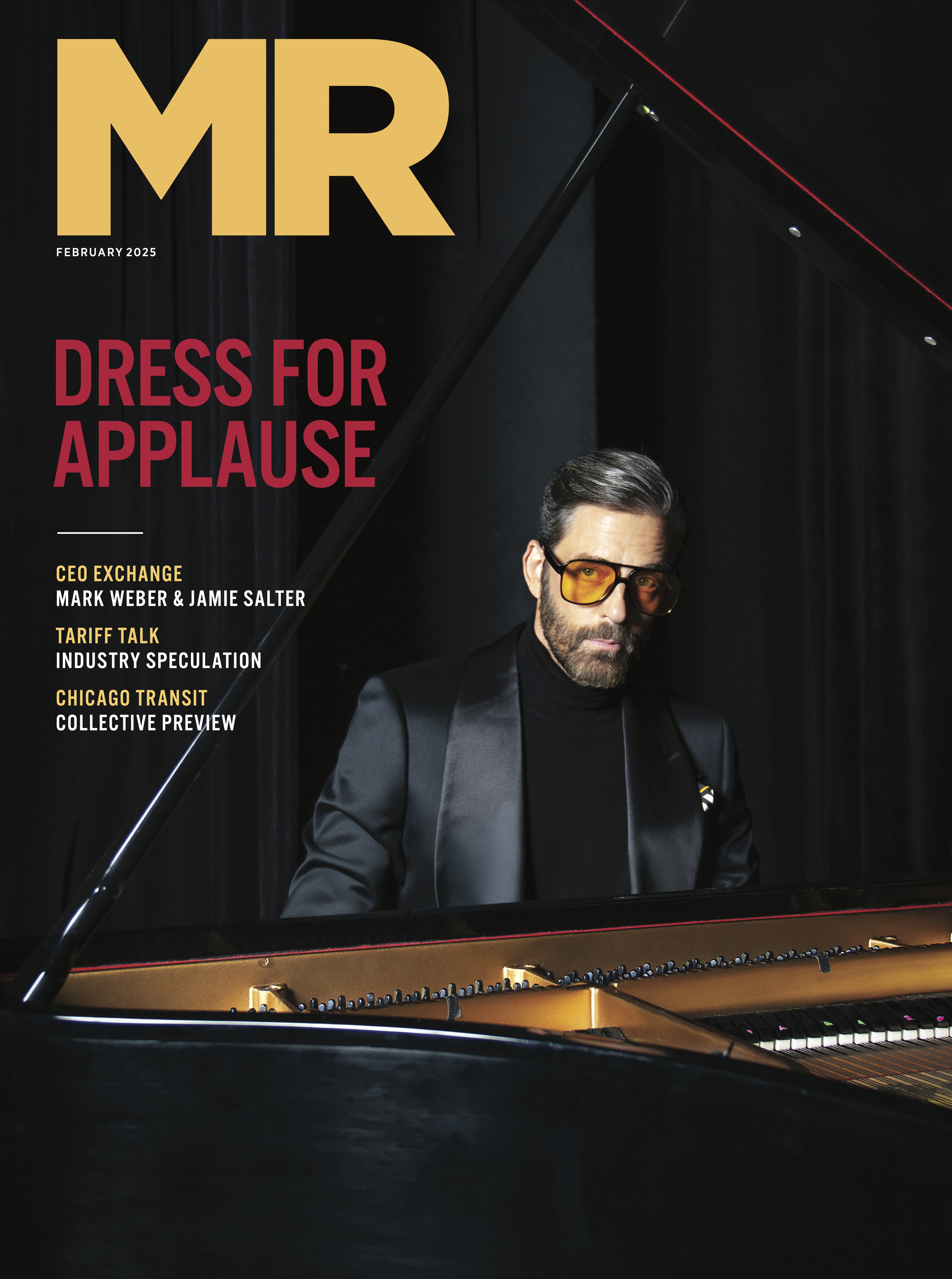


Claudio Del Vecchio, the owner of Brooks Brothers for the past two decades, has often said it best. We’re (Brooks) not GOOD because we’re OLD, but OLD because we’re GOOD!
Congratulations to these fine stores for being so GOOD for so long!
This Report is nothing short of Magnificent!!!! The photo essay to accompany the report is just outstanding, and so real and true. The photos just ‘bring it all home’ !!
These stores are so important in Retail History, and in the history of the cities where they are located.
I grew-up in Houston, Texas. I knew the Ditto store well. We just called it Ditto’s in our family. Even as a young child, I went there with my father to buy his suits and sports wear. Even though I was only a kid, they treated me as though I was an actual customer! The sales staff always gave me a Coke, and took me around the store and taught me what was new in fashion, and how things matched and worked. It was wonderful, and when I became a teen, Dad took me there too for my clothing needs. The service never changed from me being a kid to a customer, I always felt like Royalty in there!
All of these Stores are an important part of our local city history. Just like a fancy hotel, a great Retail Store is part of the heart beat of the local city. Those stores influenced lives and a way of thinking about being well dressed, and fashionable.
When Dad took me to Ditto’s in Houston when I became a teen, it gave some of my first young feelings of what it was going to be like to be a Man the rest of my life. Now, that’s power, and very positive social influence!! I am so grateful that this was part of my life!!
Lance
ok ….so now i have a goal, 25 years done only 75 to go :-) Well done to all on this pretty spectacular list.